Susan’s Recurrent Triple Negative Breast Cancer & Parkinson’s Story
In 2000, Susan discovered a lump in her left breast. After a fine needle aspiration, doctors told her it wasn’t cancerous. Following surgical removal, they discovered they were wrong. Susan struggled with denial but eventually came to terms with her diagnosis, and later overcame breast cancer.
Nearly 20 years later, Susan was diagnosed with Parkinson’s and a few years later, breast cancer again. This led her to decide to get a double mastectomy. Rather than opting for implants, Susan chose an aesthetic flat closure which she came to struggle with after not being well-informed about the decision.
With the support of her physician husband and family, Susan overcame Parkinson’s symptoms and 3 breast cancer diagnoses. She shares her recurrent breast cancer story with us, including what keeps her positive, how she processed having cancer, dealing with pain, her experience with hair loss, making difficult treatment decisions, and her advice for those on their own cancer journeys.
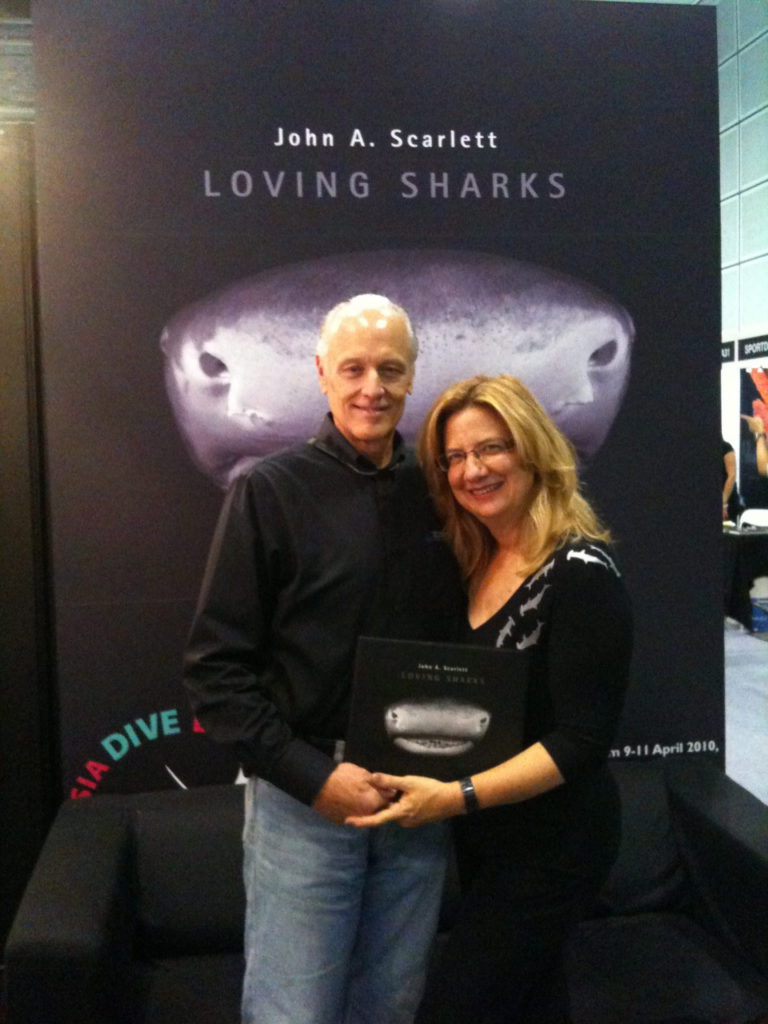
- Name: Susan S.
- Diagnosis (DX):
- Breast Cancer
- Triple-negative
- ER/PR+
- Ductal
- Breast Cancer
- Symptoms:
- Lump
- Twisted, caved-in nipple
- Treatment:
Communicate whatever you’re feeling without fear of judgment from others, without concern for other people’s concern for you…Be honest with your whole truth, because some days you’re gonna feel better, and some days you’re going to feel worse.
Susan S.
This interview has been edited for clarity. This is not medical advice. Please consult with your healthcare provider for treatment decisions.
- Symptoms & Diagnosis
- Treatment Decisions
- Chemotherapy
- Wanting to quit chemo
- A call from a friend helped her push through
- Why do you think guided meditation helped you?
- Did you go back on anti-nausea medication with chemo?
- What type of breast cancer and staging were you diagnosed with?
- How long after surgery did you begin your next treatment?
- What was your cancer care team like?
- Adjusting plans to start chemo
- Did you have any side effects from cancer treatment?
- Remission & Relapse
- Quality of Life
- Describe your experience with hair loss and regrowth
- Having a gratitude ceremony before surgery
- Did you have pain post-surgery?
- Has physical therapy improved your pain?
- What did your doctors initially do to help your pain?
- How many cancer recurrences have you had?
- Who did you receive cancer care from with your recurrence?
- Reflections
Symptoms & Diagnosis
Tell us about yourself
I’m 72. I have a husband, 2 daughters, 2 grandchildren, and 1 golden retriever. My hobbies, up until I got to this age, my husband and I’s passion in life was scuba diving. We went all over the world. It’s the only kind of vacation we ever took. He’s an underwater photographer, so we ended up with quite a spectacular set of images that we’ve designed a house around. We built this house that we’re in 4 years ago.
When did you first discover something wasn’t right?
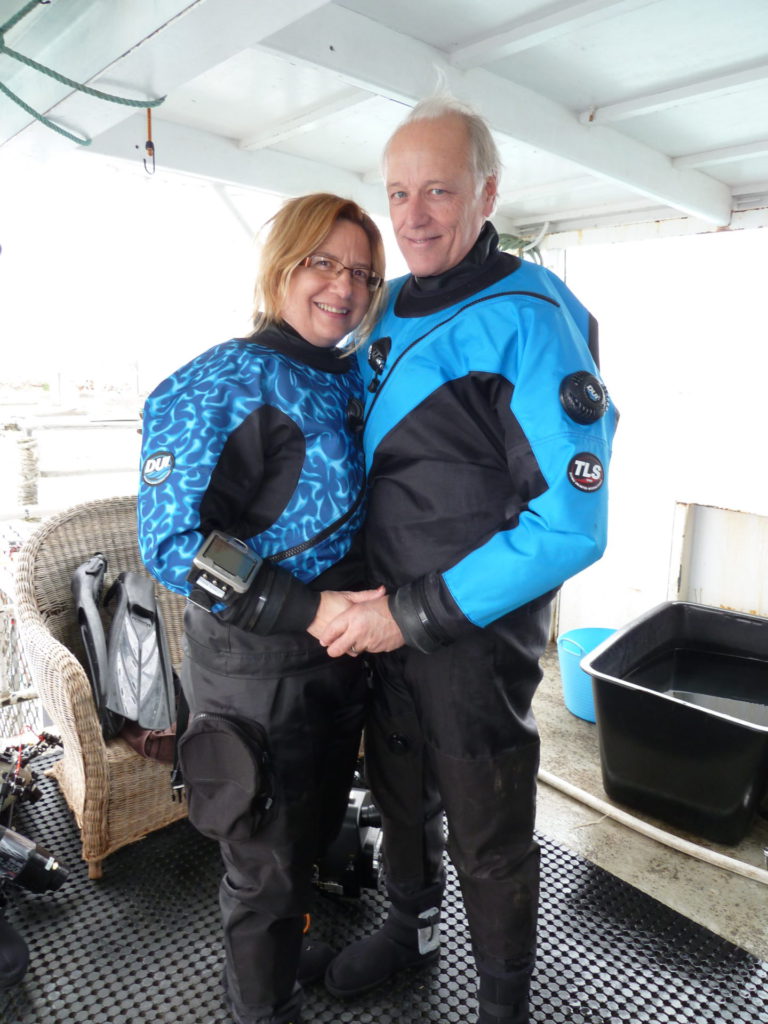
It was my husband loving me, and he found a lump. He’s a physician and he didn’t want to alarm me, but he also didn’t want to ignore it. So he found it without looking for it. It was a left-sided tumor.
Getting a fine needle aspiration
The guy had missed it 3 times when he did the fine needle aspiration. He told me I had no cancer…They sent it to pathology and they said, “Oh, that’s positive.”
We had a fine needle aspiration scheduled. The guy took 3 samples and we were supposed to go to Australia 2 or 3 days later. They got a report back and they said, “No problem, you don’t have any cancer. But we might as well take that thing out.”
We go to Australia, we’re gone for 3 weeks, we come back. My mom is staying here with the kids and she gets this call from the hospital. They said, “We just wanted to talk to Susan about her surgery that’s scheduled in a few days.” My mother was like, what surgery? Because they told us there was nothing, it was no big deal.
We called and the guy had missed it 3 times when he did the fine needle aspiration. He told me I had no cancer. Then we went and did the surgery and they sent it to pathology and they said, “Oh, that’s positive.”
How did you react to hearing you had cancer?
It felt like this hard little rock and it wasn’t much bigger than the size of a pea. It freaked me out so much that I never went looking for it again.

That was an awful day. Just like everybody else, when they first hear that news, you go numb, deaf, and blind. Fortunately, my husband being a physician, was able to ask the right questions, chase this down, and figure out what to do.
We live in Austin, but we ended up going to MD Anderson in Houston for my care, which was tremendous. The care was great. I had a lumpectomy and they took 5 lymph nodes, all of which were negative, which was wonderful.
»MORE: Reacting to a Cancer Diagnosis
I was in such denial. This is really pathetic, but my husband, when the lymph nodes came back negative, he knew that was really good news. I had really mixed feelings about it. Intellectually, I knew that that was really good news. But emotionally, I was still in the space I’d been a few weeks before the trip, which was, you don’t have cancer. So I was like, if the lymph nodes had been positive, it would have been proof that I had cancer.
What did you think when you discovered the lump?
Nothing, and I felt it. He told me where to feel it. I felt it one time and I was so freaked out. It felt like this hard little rock and it wasn’t much bigger than the size of a pea. It freaked me out so much that I never went looking for it again. There’s this crazy emotional thing that doesn’t have any rationality attached to it.
Treatment Decisions
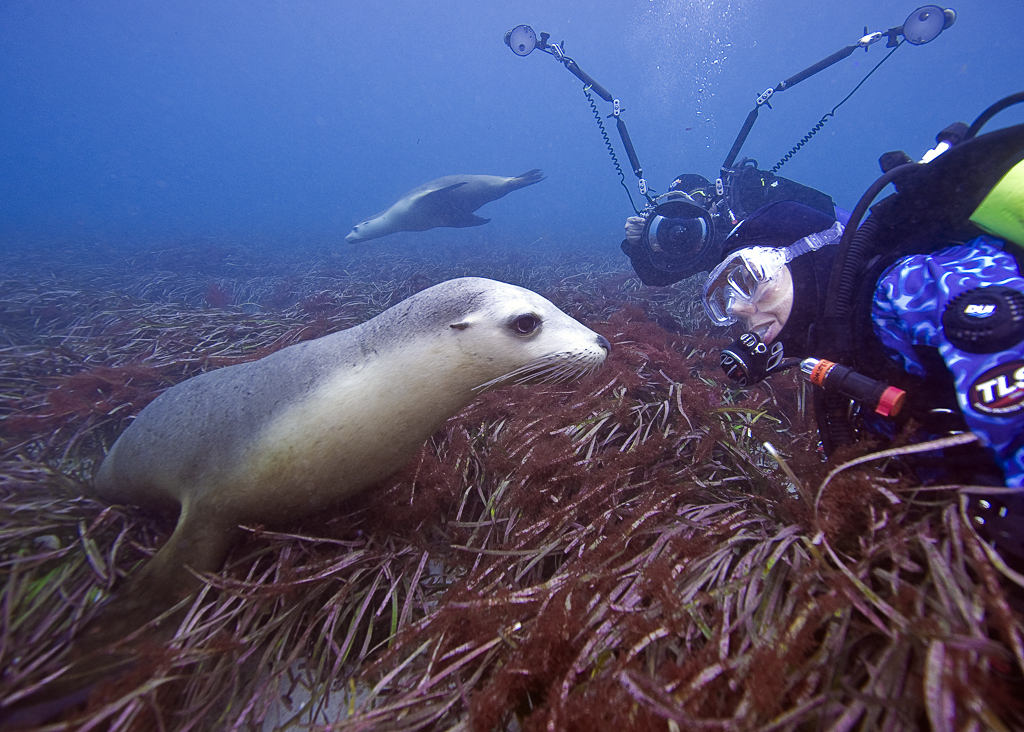
Choosing the next course of treatment
The oncologist recommended chemotherapy and radiation following that, and he gave me 2 choices. I don’t know if other people you’ve talked to have had this situation, but he said, “You can either do this or you can do this. The statistics tell us that 97% of the people who do this type of chemotherapy have no return of the disease, but you do lose all your hair. This one over here, the statistics tell us that you don’t lose all your hair and is 93% [effective].” So it was a 4% difference. I really was emotional about my hair. I said I’m willing to gamble on that 4%. Let’s go with the one I’m not going to lose my hair. The doctor said, “Why don’t you guys go home and think about it? Call me if you have any questions.” We got home and we thought, We do have questions.
Getting a biopsy
The surgeon here in Austin who did the fine needle aspiration said, “When you get back from Australia, let’s take it out.” So as far as I knew, I was taking out a benign little something and it came back positive. I never had a biopsy. Then when I went to MD Anderson, they said we needed better margins. They took another whole section in the same spot, but bigger, and the lymph nodes with the sentinel node biopsy. I had no idea how painful a biopsy was.
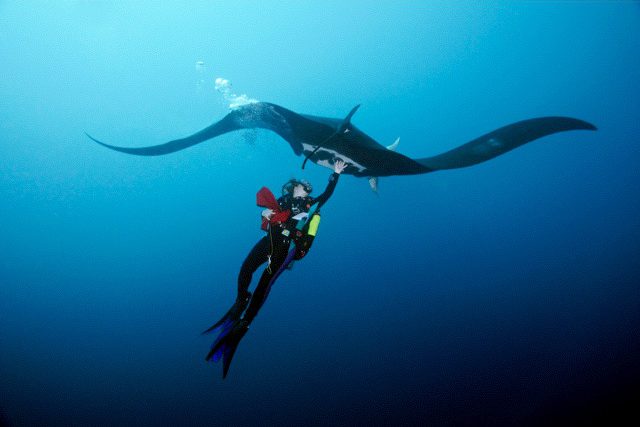
Processing a cancer diagnosis
I learned a lot about denial. It’s a powerful human thing. I remember 2 times realizing I had been in denial. One was 9 days out. As I said, my husband’s a physician. He’s very compassionate, he loves me dearly, and he was just very present for me.
I made plans and he figured out the MD Anderson piece. Then 9 days later, I remember driving up the driveway and he stopped the car on the hill of the driveway because I had said something that made him realize I totally was disconnected from this truth. It wasn’t internalized. We had another long conversation, and then I thought I got out of denial.
I learned a lot about denial. It’s a powerful human thing.
There was another episode of that 4 months in. I just realized, oh my gosh, you still really haven’t grasped how serious this is.
Do you have a family history of breast cancer?
No mom, no grandmom, no aunties. I have 2 daughters and they now have a family history. That was scary. I don’t have the BRCA gene, so that’s a good thing for my kids.
»MORE: Genetic Testing For Cancer
Chemotherapy
Wanting to quit chemo
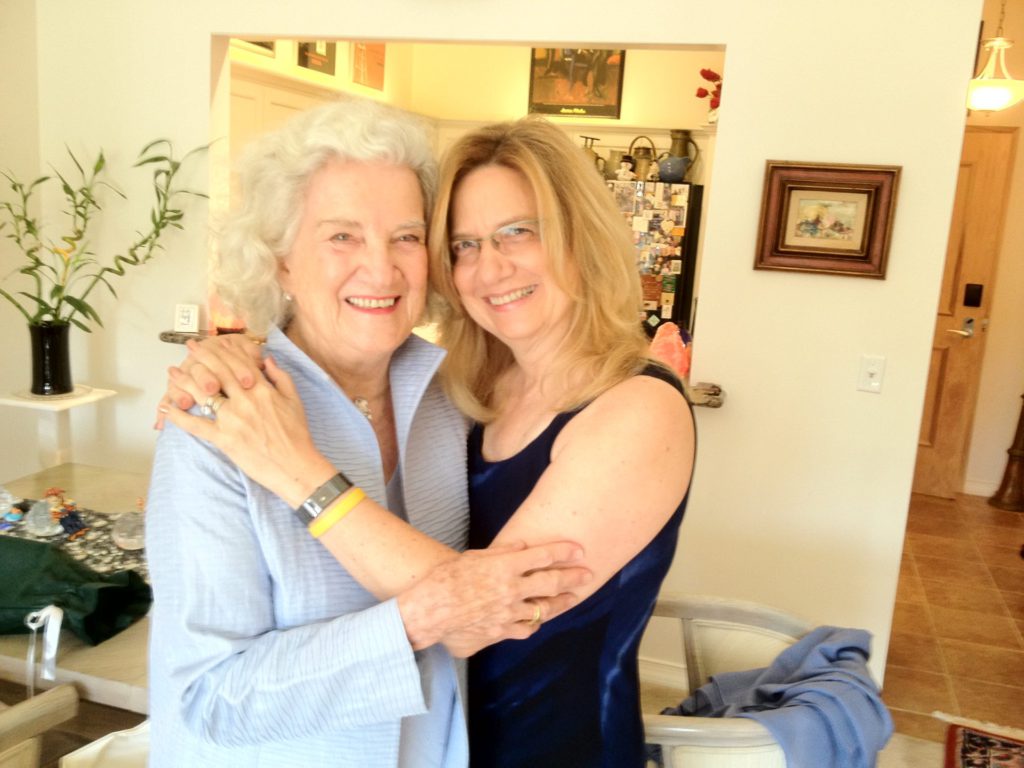
I was amazed at how angry I was every time my hair would fall out. It took me a few months to realize I was angry at the cancer.
We were talking to the oncologist who had a couple of choices he was happy with for me, and one would mean I would lose part of my hair and one would mean I would lose all my hair. This is the one they called the Red Devil, Adriamycin. The other one, I don’t remember what it was anymore. That little cocktail was 3 different drugs. With that one, I was going to lose maybe a third of my hair and I did.
I was amazed at how angry I was every time my hair would fall out. It took me a few months to realize I was angry at the cancer. It was really unlike me to be semi-violent, but it was all emotion. It’s just a tough thing.
I was scheduled for 6 treatments, 3 weeks apart, and it was IV. I Did not have a port. After the fourth one, they forgot to give me antiemetics, anti-nausea drugs. We drove back to Austin and I was sick all night. I was unprotected from the chemo and I was so miserable and so sick that the next morning I said to my husband, I’m not doing that again. I’m not getting in the car and driving over there and giving those people my arm so they can pour those poisons in me. I’m not doing that. He was so dear, so tender, and smart. He didn’t say anything. He was sitting down next to me on the bed, and he went, “No judgment.” He didn’t support what I said. He didn’t deny what I said. He just was neutral.
»MORE: Managing Nausea and Vomiting from Chemotherapy
A call from a friend helped her push through
I just cried for a long time, and I had an amazing thing happen. I had a friend from Denmark call me right in the middle of that refusal. As soon as I answered the phone, she could tell something was wrong. She said, “I may be able to help you.” This is a long-distance call from Denmark. She said, “It’s essentially a guided meditation and if you’d be interested, we could do this and just see what happens.” I trust her and I love her so I did.
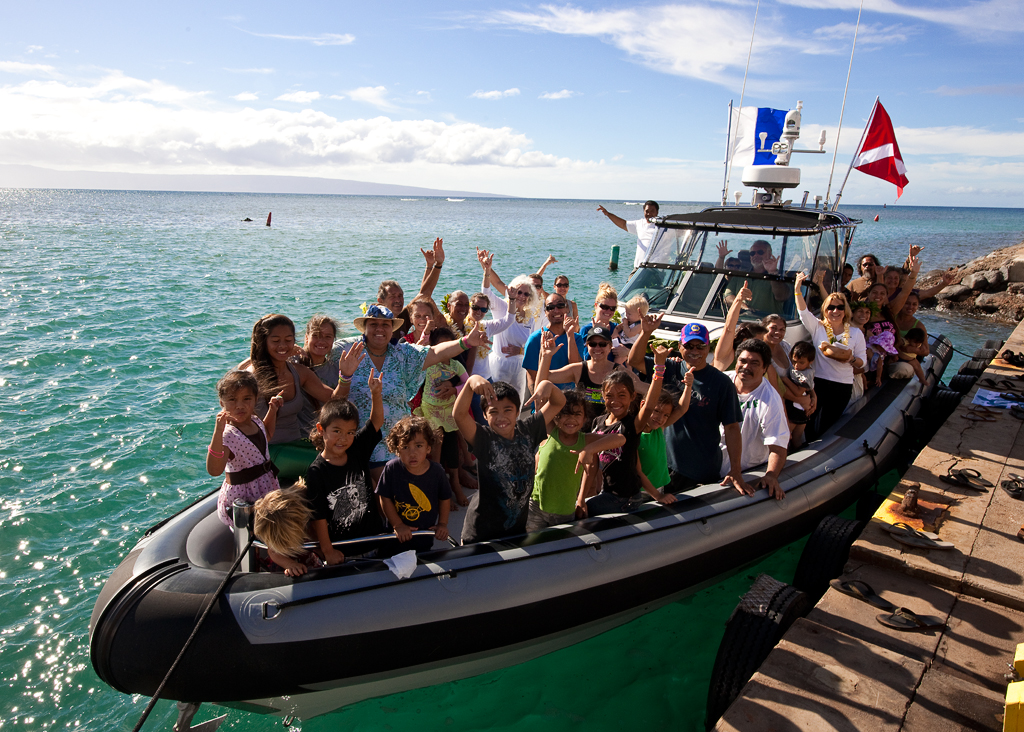
I was walking toward the beach in my imagination…It was the most amazing feeling. It was this sense of, there she is. There’s that healthy girl.
She had me lie down, it was sort of awkward, then take my phone. It was resting on my shoulder so I didn’t have to hold it. She said “I want you to take your right hand and point all the way out and picture you healthy. Picture a healthy Susan.” She talked in the third person and I answered in the third person and I said, “She’s on a reef. She’s swimming in this beautiful sparkling water over all this color and all this life, and all these fish. It’s just gorgeous.” She said, “Take your left hand, extend it all the way out, and tell me where you are. Tell me what you see.” I said, “I’m in this house and it’s surrounded by this huge forest and I feel like I have to go outside and I have to go in this forest and I’m really scared. I can’t see any light source. The trees are so tall and they’re blocking out the sun. But I feel like I need to go through this forest.”
She guided me step by step and she would ask me questions like, “What are you feeling and what are you seeing?” I was walking toward the beach in my imagination. When I got to the edge of the trees and the beginning of the sand, it was the most amazing feeling. It was this sense of, there she is. There’s that healthy girl. I can see her. She’s right there, and that’s me. I kept walking and I got to be on the reef and be healthy and live. I told my husband I was willing to go back for the next treatment.
Why do you think guided meditation helped you?
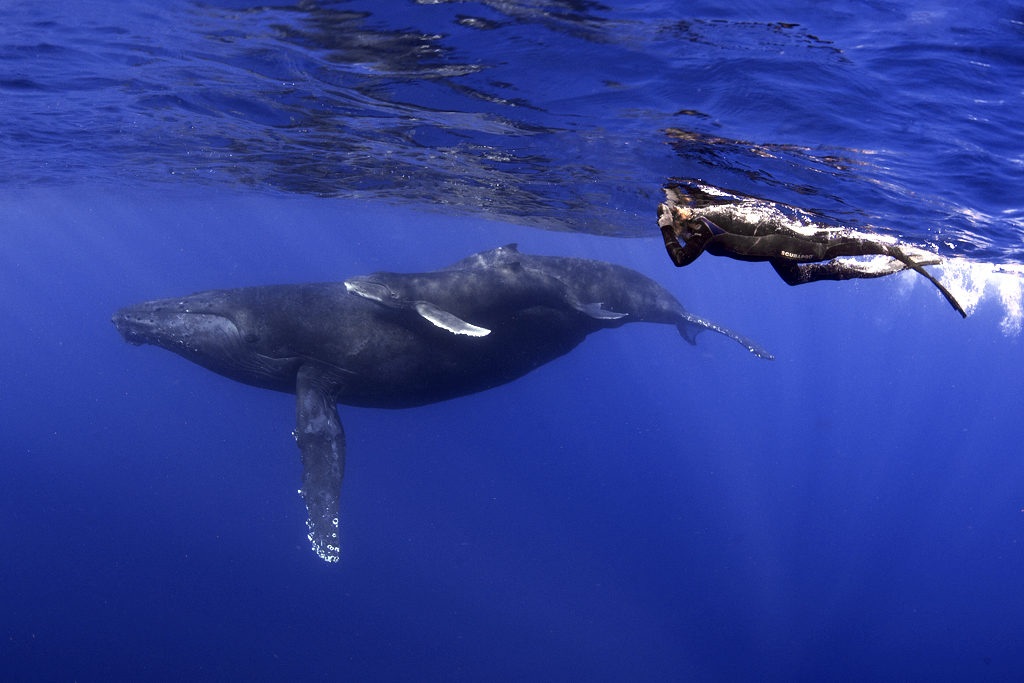
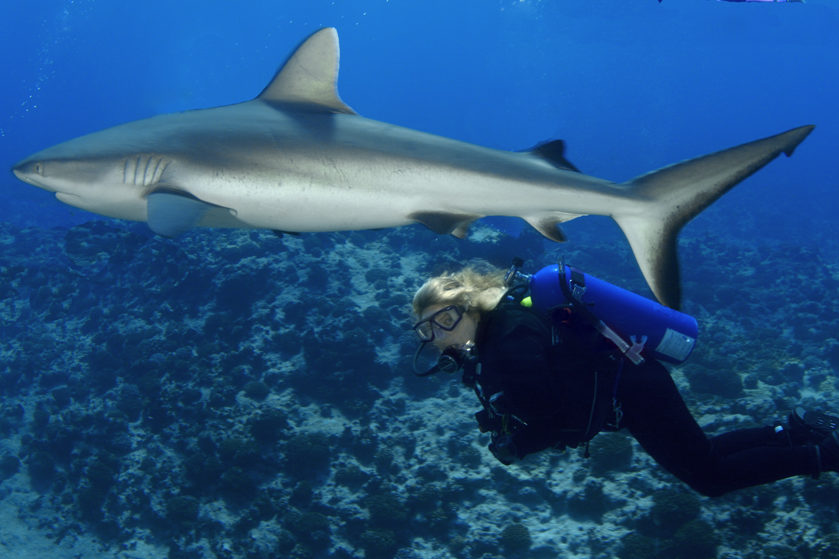
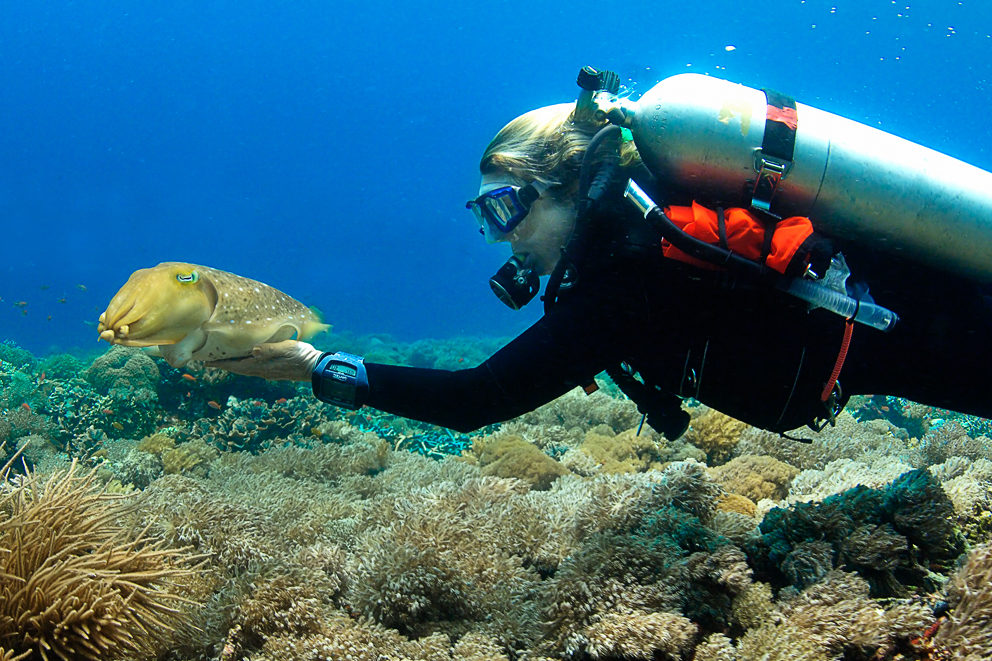
The whole third-person part of it was so interesting. I think there’s something about the fact that it was in the third person like it keeps a safe connection. In other words, if I feel bad, I can still accept this potential as opposed to feeling bad, giving up, and having no hope. It’s not specific. It’s atmospheric.
It was really amazing. I think we were on the phone for about 2 hours. It was a crazy long phone call to Denmark.
Did you go back on anti-nausea medication with chemo?
With this type of cancer, it was not recommended that I take anything. That is my first cancer. That was a long time ago. For the more recent cancer, I didn’t do chemotherapy, but I am on a 5-year estrogen blocker and that has all the normal side effects.
What type of breast cancer and staging were you diagnosed with?
What I remember is triple-negative. I don’t remember them ever staging it. It was invasive, so it penetrated the cell wall. That probably stages it above 1.
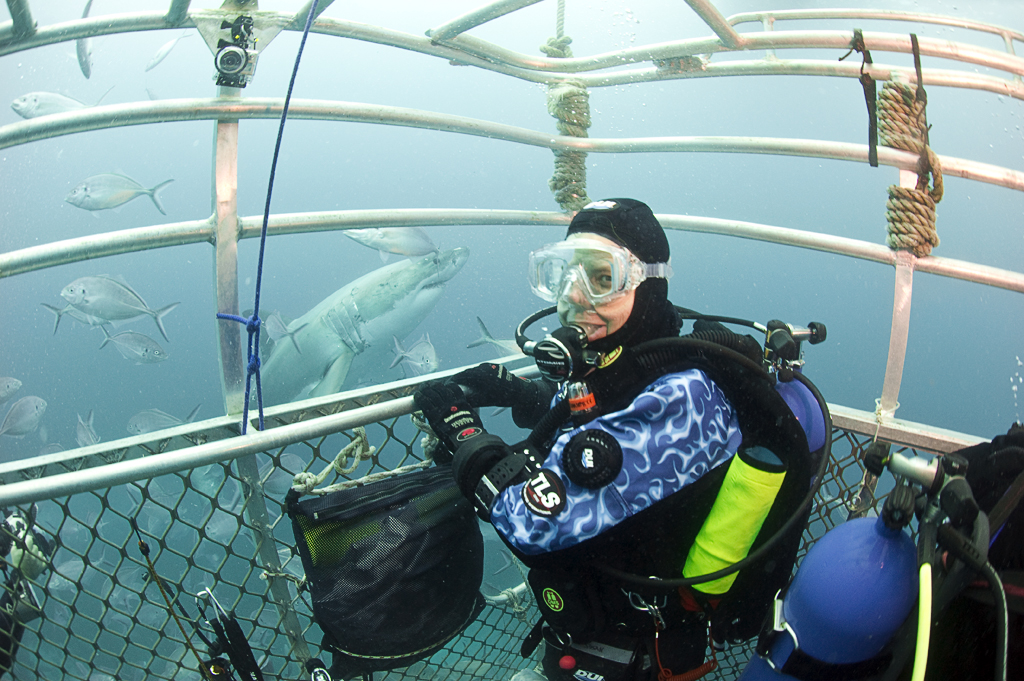
How long after surgery did you begin your next treatment?
After I did the surgery first, I did 6.5 weeks of radiation.
What was your cancer care team like?
My doctor was wonderful. The first time we talked to him, to my astonishment, he sat with us for 2 hours and 15 minutes. That’s unbelievable. My husband is a physician, so he had done a lot of research before we got there. I had such a good team that I allowed a lot of what was going to happen to be researched and recommended by others instead of having to do that myself. I would ask whatever questions I had.
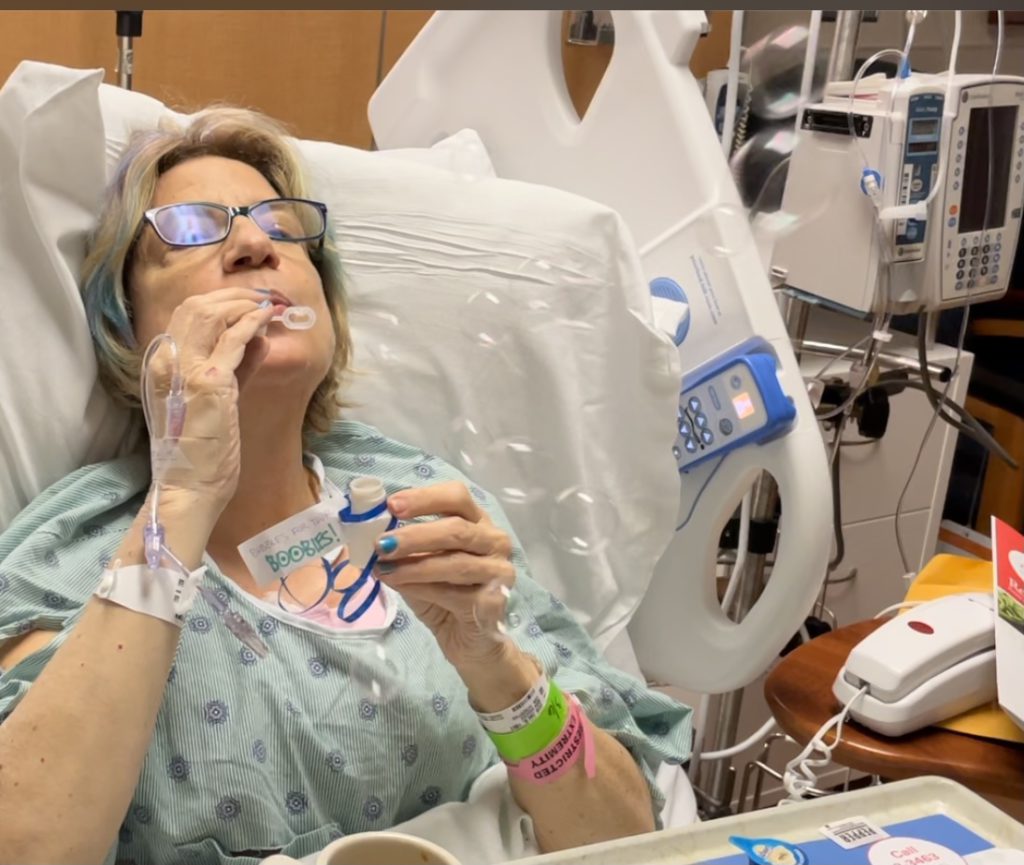
My doctor was wonderful. The first time we talked to him, to my astonishment, he sat with us for 2 hours and 15 minutes.
Adjusting plans to start chemo
After the surgery, when he was telling me about the chemotherapy and I had decided which one to go with, it was December 18th. I figured Christmas was coming and New Year’s. My birthday, my daughter’s birthday, and my granddaughter’s birthday were all the first week in January. I thought, let’s just start this after all those birthdays and all those holidays. Let’s start somewhere around January 12th.
The doctor said, “Let’s talk about when we’re going to get started.” I didn’t even have a chance to say anything that was on my mind. He goes, “What do you think?” There was something about his body language that I thought, oh, my gosh, he’s talking about right this minute, like today. I looked at my husband. He’s sitting on his chair and he just had this completely neutral look. Not encouraging me, Not discouraging. It’s December 18th and I thought, oh my gosh, Susan, this is on you. You have to respond. You’re the only one in this room who’s going to say the next words. You got to figure out what it is and then you got to follow through with it right now. I said let’s do it. I was like, whoa. I just agreed to my first chemotherapy right now. However, I also thought, okay, that’ll be one down. One will be behind me.
He fit me on the list and my husband, poor thing. He was coming down with a virus and he had to wait till they could fit me in, which was 9:30 at night.
I thought, oh my gosh, Susan, this is on you. You have to respond…You got to figure out what it is and then you got to follow through with it right now.
Did you have any side effects from cancer treatment?
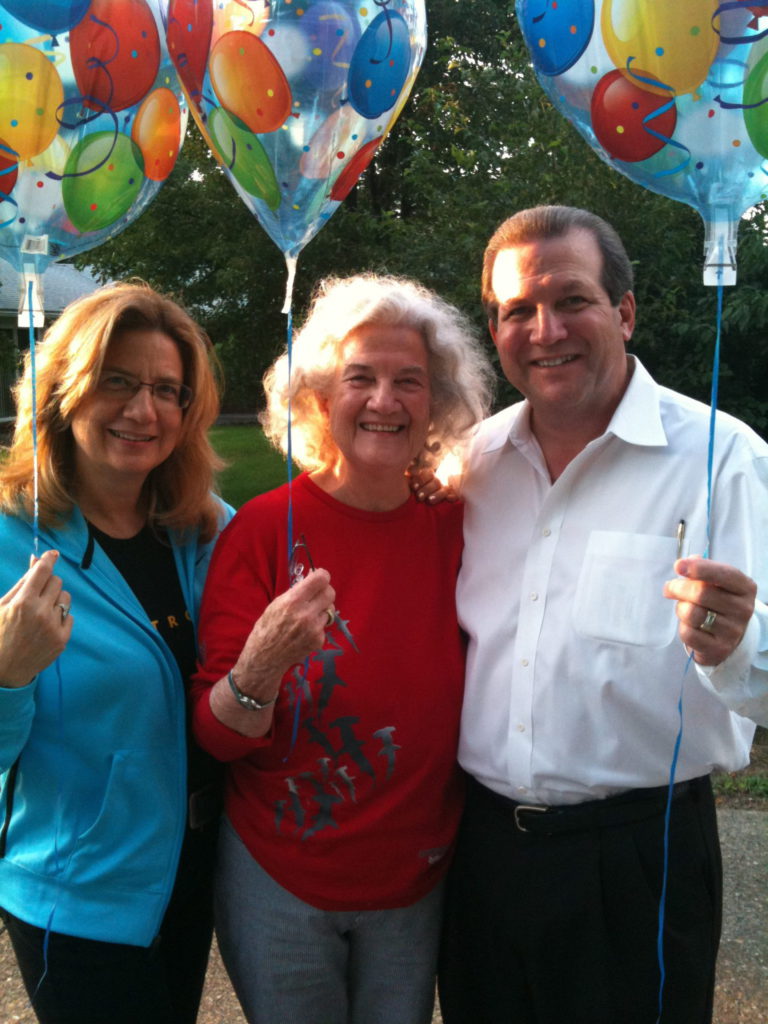
Nobody knew because I had never taken any of these anti-nausea drugs before. They gave me Zofran, which was their big, super successful drug to keep people from getting sick. Well, I had an allergic reaction to it. The next day I was in a head-to-toe rash and I fainted. My mom was here. That was the fourth one.
The first one, they gave me a great drug. I didn’t get sick. The next day, I had an allergic reaction. For the second treatment, they gave me another antiemetic, but it was a sister drug to the first one so I had another allergic reaction to the second drug. The third time around, they said, “We’re not doing that again in any form.” They gave me a third drug which worked okay, and the fourth time they just somehow forgot. The fifth and the sixth times, they got it right.
Remission & Relapse
That was awesome news, but it was a little bit stunning to discover I had a second breast cancer that was different.
Describe your surgery
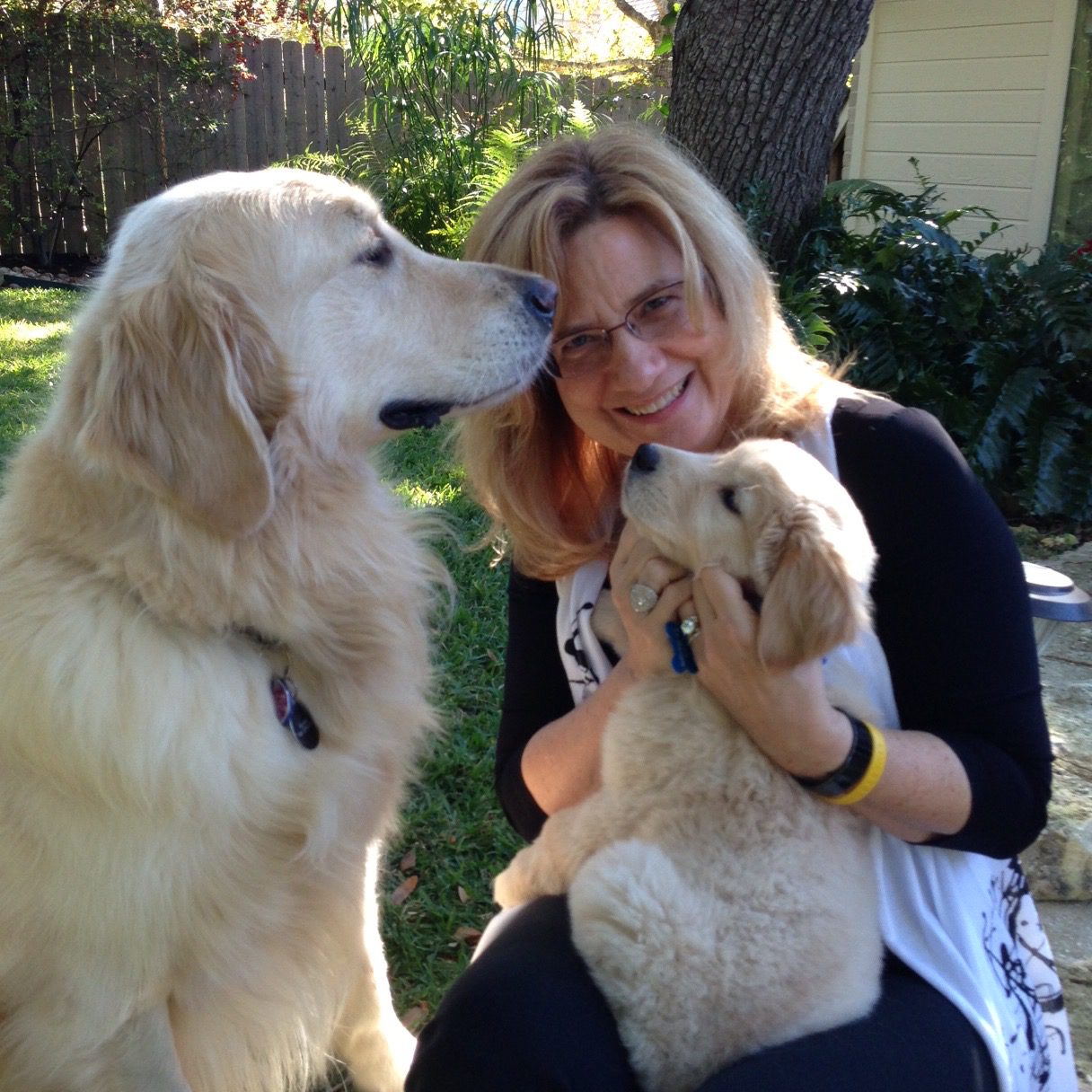
It was with a surgeon at a breast specialist at MD Anderson. She explained things, what she was going to do, and it was going to be a lumpectomy. She explained what a sentinel node biopsy was and how they were going to put a dye in where the tumor had been and watch what happened. I thought that was fascinating that they could see this blue dye traveling across me to the lymph system.
I don’t remember the recovery being difficult. Not that I’d ever had surgery before, so I’m sure I had to deal with drains and stuff. I don’t remember how long I was in the hospital.
Taking preventative measures against radiation burns
There was one beautiful part of that, which is that the team at the radiation place said, “There’s this French cream and we want you to use this for 2 weeks before we even get started. Use this every day. It will protect you because eventually this radiation will be like a bad sunburn and this will really help.”
It’s a daily treatment 5 days a week, not 7, but 5 days a week. I did what they said. I started 2 weeks with the cream. Probably 2 weeks into those 6.5 weeks, they said to me, “You’re using that cream, aren’t you?” I said yeah, I am. They said, “Most people don’t start. They don’t do what we tell them to do and they really get burned. You’re really in great shape for being a couple of weeks into this process. You’re going to be okay.” I didn’t have a sunburn feeling probably until 5, 5.5 weeks, or 6 weeks into it, which was nearly the end of it.
[The cream] is Biafine.
»MORE: Coping with Radiation Burns
Scarring post-radiation
What I did get, that I didn’t know until a couple of years ago when I had cancer, is that radiation can scar deep down. On the left side, they put the big heavy radiation blanket thing over you. All the area that was irradiated had pretty terrible scarring that I wasn’t aware of. I didn’t feel it until after they took off all my breast tissue a couple of years ago when I had a second cancer.
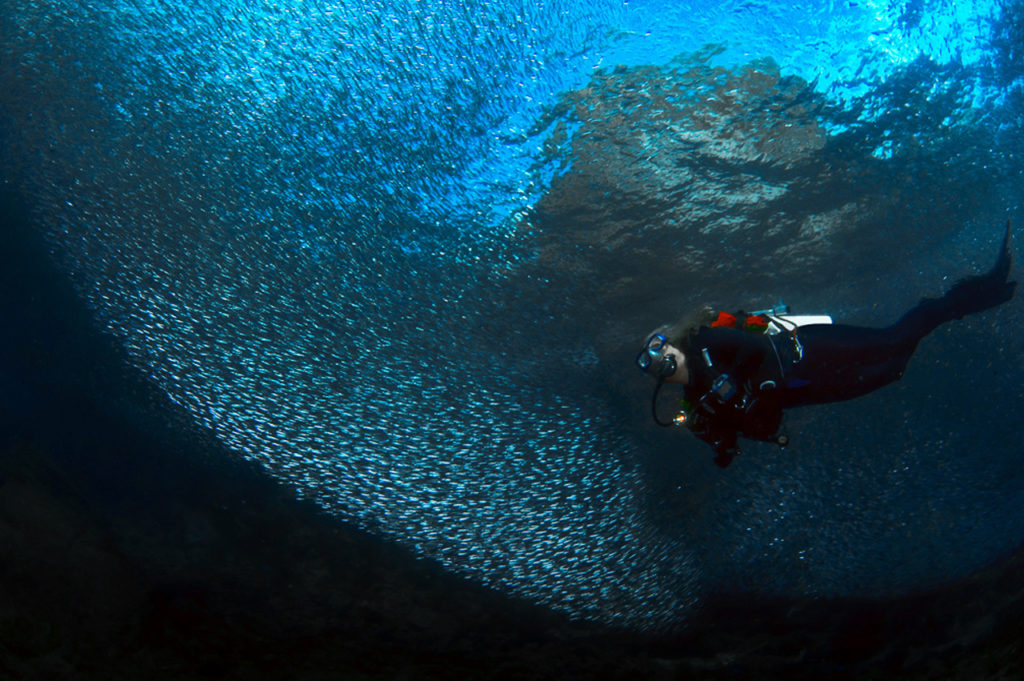
No warning. No awareness. No thoughts about that at all. I would associate scarring with a cut, and there were 2. One where the lump was and then one where the sentinel node was taken, but they were tiny.
Celebrating being cancer-free
I made the decision to go back to MD Anderson for the mammograms which were every 6 months for a little while and then graduated up to a year. There was just a comfort level in doing that, and that carried on and everything was negative.
It’s 10 years later and I’m like, Whoa! Typically in 5 years, you can consider yourself in remission, if not gone. But 10 years later, I threw myself a 10-year cancer-free anniversary party and people came from all over the country. It was a lovely, lovely thing to do for myself and my friends. We all celebrated.
»MORE: Learn More About Cancer Remission
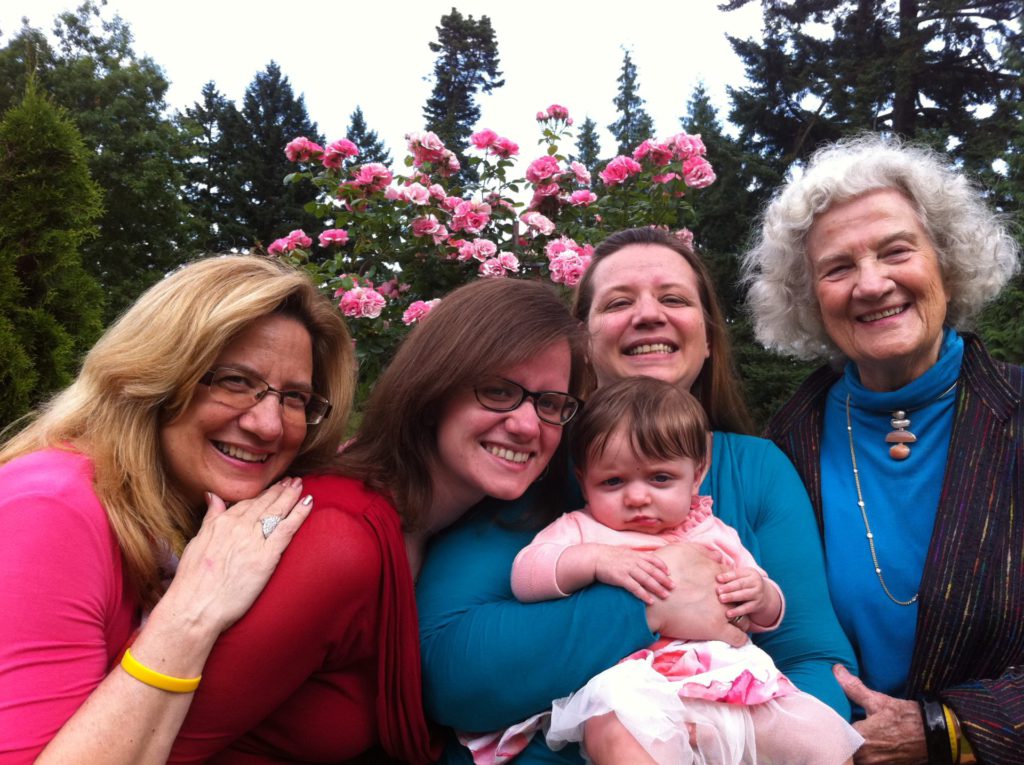
Experiencing cancer recurrence after 20 years
Another 10 years went by before I had another cancer experience. But in the interim, I got a diagnosis of Parkinson’s disease in 2015. The first cancer was in the year 2000 and the Parkinson’s was in 2015. Then in 2021, I was looking in the mirror one day and I thought, that breast doesn’t look right. That nipple looks weird. It was kind of twisted and caved-in looking.
I went to my doctor and it was the nurse practitioner that I saw. She didn’t even have to examine me. I saw in her face real concern. Then she examined me and she said, I’d like to send you for a mammogram and a biopsy. Are you free to do that today? I said sure, I can do that. She worked the system and all that happened the same day. I had no idea what a biopsy really meant. It hurts so much.

Another 10 years went by before I had another cancer experience. But in the interim, I got a diagnosis of Parkinson’s disease in 2015.
The technician needed to do 4 and she said, “So are you ready?” I thought I would do it, but I’m not ready for it. It felt like shooting with force, with velocity, with pressure. Shooting this big opening thing right into my flesh so that they could pull out a section of me. It felt like a rocket. It was so fast and so strong. It was just awful and really painful but I survived that.
What type of cancer were you diagnosed with the second time?
I quickly found out that it was a completely different cancer than the first one I had. This one was estrogen-positive and it was progesterone-positive. One of them was ductal and the other one wasn’t. I can’t remember which was which anymore, but it was completely different. It wasn’t metastatic, lingering for 20 years. That was awesome news, but it was a little bit stunning to discover I had a second breast cancer that was different.
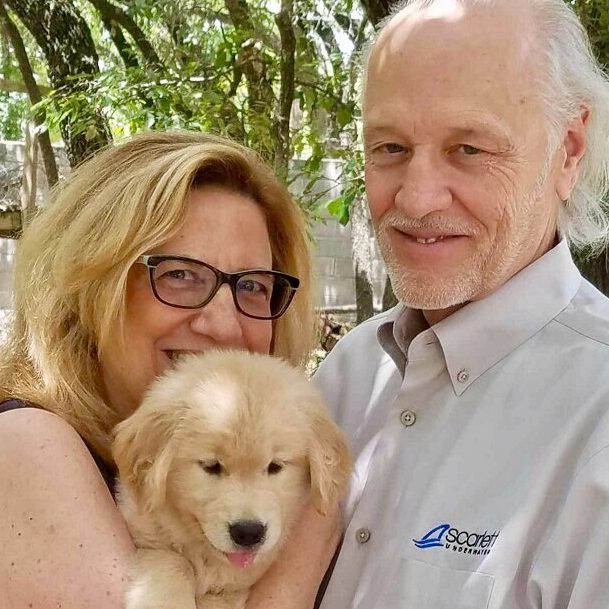
Opting for an aesthetic flat closure
I didn’t want to have just one breast removed. I said if we’re going to do this, let’s just do this bilateral. Because the tumor was right underneath the nipple, I didn’t want to have reconstruction. I was going to end up flat. I was just working with aesthetic flat closure. That sounded great. It sounded like it would be pretty, it would be fine. Somehow I never looked at pictures. I didn’t ask and the doctor didn’t offer anything like that because I came in prepared with, I don’t want to do reconstruction.
People could tell me all day long, that’s not who I am and that’s a social construct and that’s whatever. All those things are true, and that doesn’t touch the fact that I’m rattled here.
Not looking at pictures probably was a mistake. I didn’t not look at pictures intentionally. It just never occurred to me. As difficult as it is to look at pictures, you can learn things because I didn’t. I didn’t know until I got home and I took off all the bandages and the dressings that they took the nipples. There’s this completely flat and caved-in on the left side chest with nothing there.
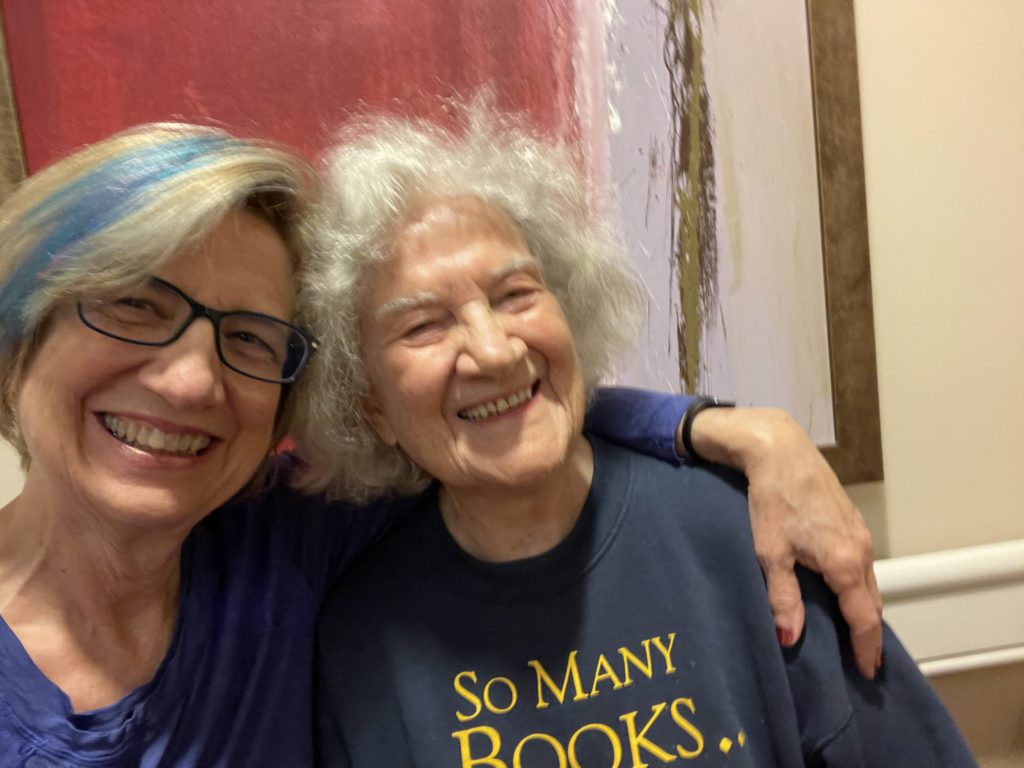
There are things you can do like tattoos and stuff, but they had no choice. They had to remove that because that’s where the tumor was. Intellectually, I knew better but oh, man, it was really hard. I don’t shirk away from my own image in the mirror, but I did for a long time. You just get used to it. I have so much that’s wonderful in my life and I couldn’t live in that sad place. I had to embrace it and acknowledge it, and I did. That allowed me to eventually stop being in mourning.
People could tell me all day long, that’s not who I am and that’s a social construct and that’s whatever. All those things are true, and that doesn’t touch the fact that I’m rattled here. This is hard. I just let it evolve as long as it took, but man, it was a whole lot longer than I imagined it would be.
Quality of Life
Cancer is a bitch. It’s really hard, but it’s not the most important thing in the world.
Describe your experience with hair loss and regrowth
At that time, I had long hair and I didn’t have chemo, but after having had Parkinson’s for 6.5 years, I decided to do the deep brain stimulation surgery. I had brain surgery and they had to shave my head for that. I didn’t lose all my hair with cancer. I lost my chest. I lost that sense of softness and femininity. Then I got robbed of my long hair which had been highlighted for years with blonde hair.
I pictured myself for 30, 35, or 40 years as a girl with long blonde hair. Now I have no hair. When it started growing back, because of the estrogen blocker, it came back a completely different color. I knew I was dyeing it blonde and I didn’t expect it to come back blonde. I used to be a brunette, and it came back sort of black with a lot of gray. I was anticipating the gray, and that was fine. But I was like, what’s with the black hair? What’s with all this coarse, weird curly hair? Then I thought, that’s what happens to people who have chemotherapy. Their hair comes back different than they had before. I had a huge hit on my sense of self and femininity.
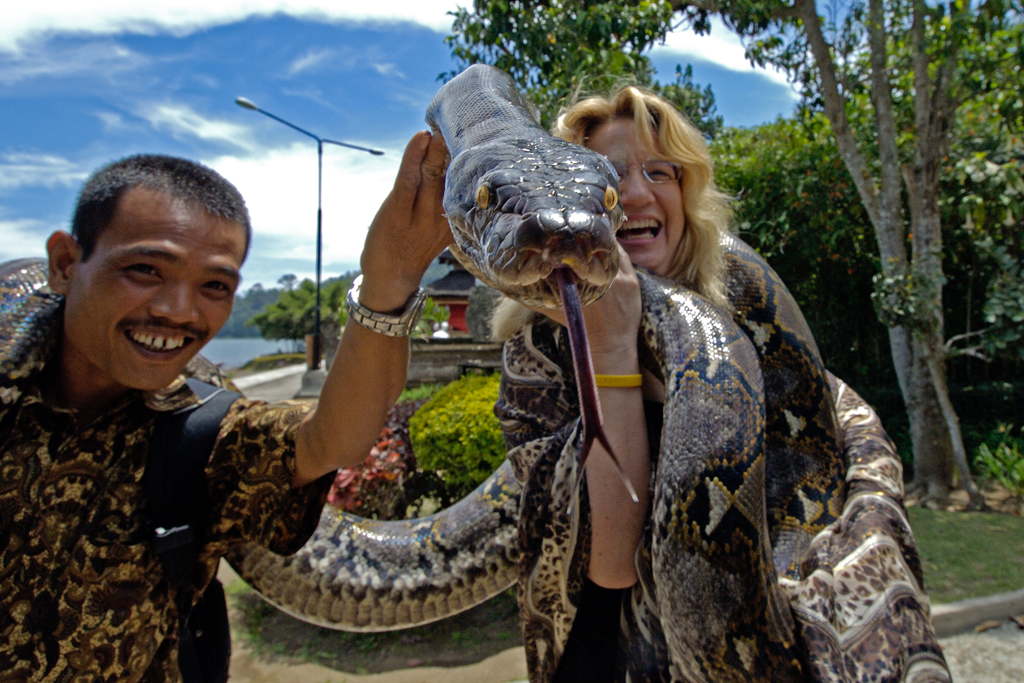
I wore scarves for a while, then I wore hats, and then I wore a wig. Finally, I just said, you’re not gonna have long blonde hair anymore. You’re not gonna have long hair for years. Might as well get used to it. I put the wig aside and every day is different. It’s not the cancer but the anastrozole which is the estrogen blocker that has a thinning hair quality. It’s going to change the texture and the color, and then it’s going to make it fall out. I keep having to clean the drain in my shower and it’s a bitch. Cancer is a bitch. It’s really hard, but it’s not the most important thing in the world.
I gave myself permission to say all that. I hung on to the fact that it mattered to me, so everybody’s attempts to cheer me up were sweet, but it just didn’t touch it.
Having a gratitude ceremony before surgery
I’ll tell you what I did before the surgery, before I knew I wasn’t going to have any nipples, and before my hair did this. If there’s any highlight to finding out you have cancer, this is one of the best things I ever did. We built this home that I’m in just 4 years ago, and it’s just gorgeous. It’s all curvy and really cool and it’s all 1 level and the roof is flat. We overlook this beautiful scene with a river and sunsets that are just spectacular.
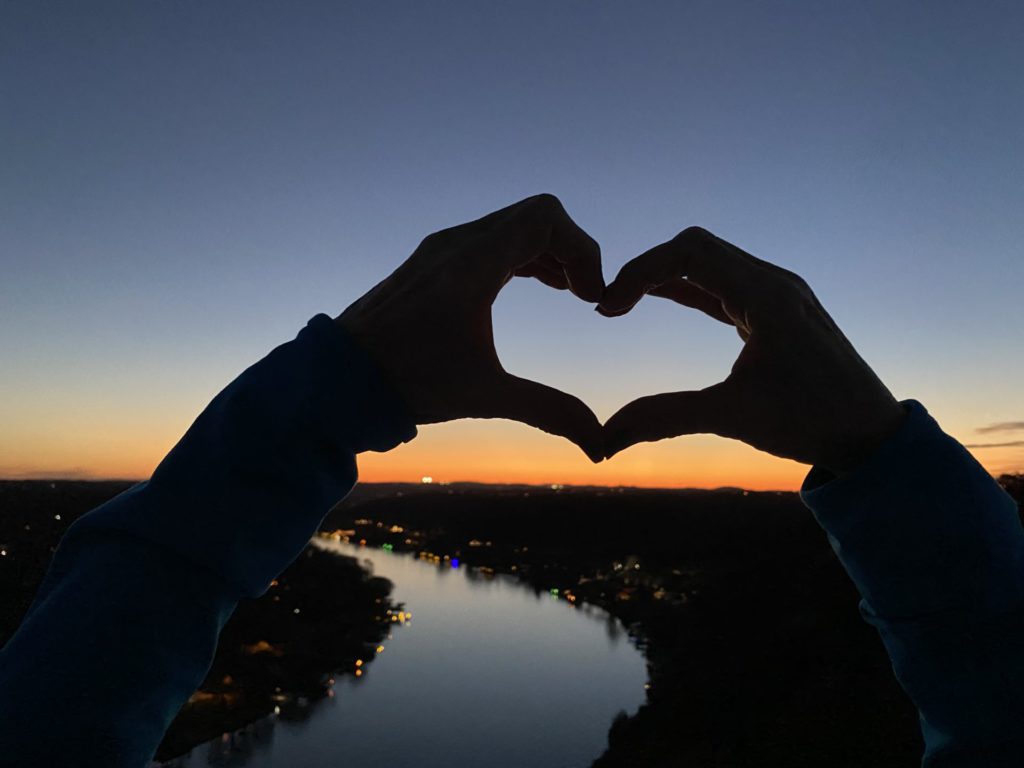
I went into my surgery in this great headspace.
I decided I was going to have a sunset rooftop ceremony before my surgery to thank the girls, to honor them for everything they had done for me, for feeding my kids and contributing to my sense of myself. I wrote to all my girlfriends and said I’m going to do this. I wanted to be alone. If you have any songs that you would want to send to me, my niece told me she’d make a playlist for me. Send them to her so I don’t know what they are.
My niece and nephew were living with me when I went through the whole thing and it was beautiful to have them here for several months. Some people sent gifts which I was unaware of because they sent them to her. Before my ceremony, there was a beautiful sunset. I said we probably should go up there today and do it because we were within a day or 2 of this surgery, so we did.
She brought all those gifts up there. My nephew, this is so sweet, he had gone up on the roof and noticed that it was kind of dusty, so he took a sponge and water and a mop and he made big hearts. He wrote “We love you,” and all these messages on my rooftop in the dust. It was so sweet. You don’t think a guy is doing stuff like that. It was really, really dear.
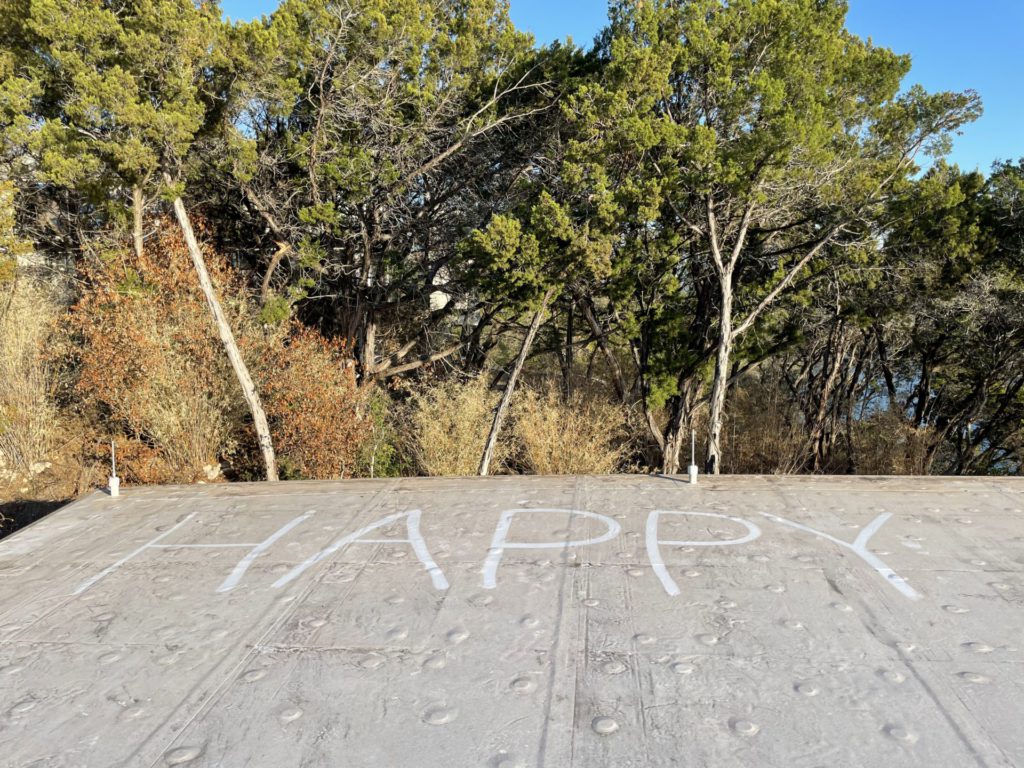
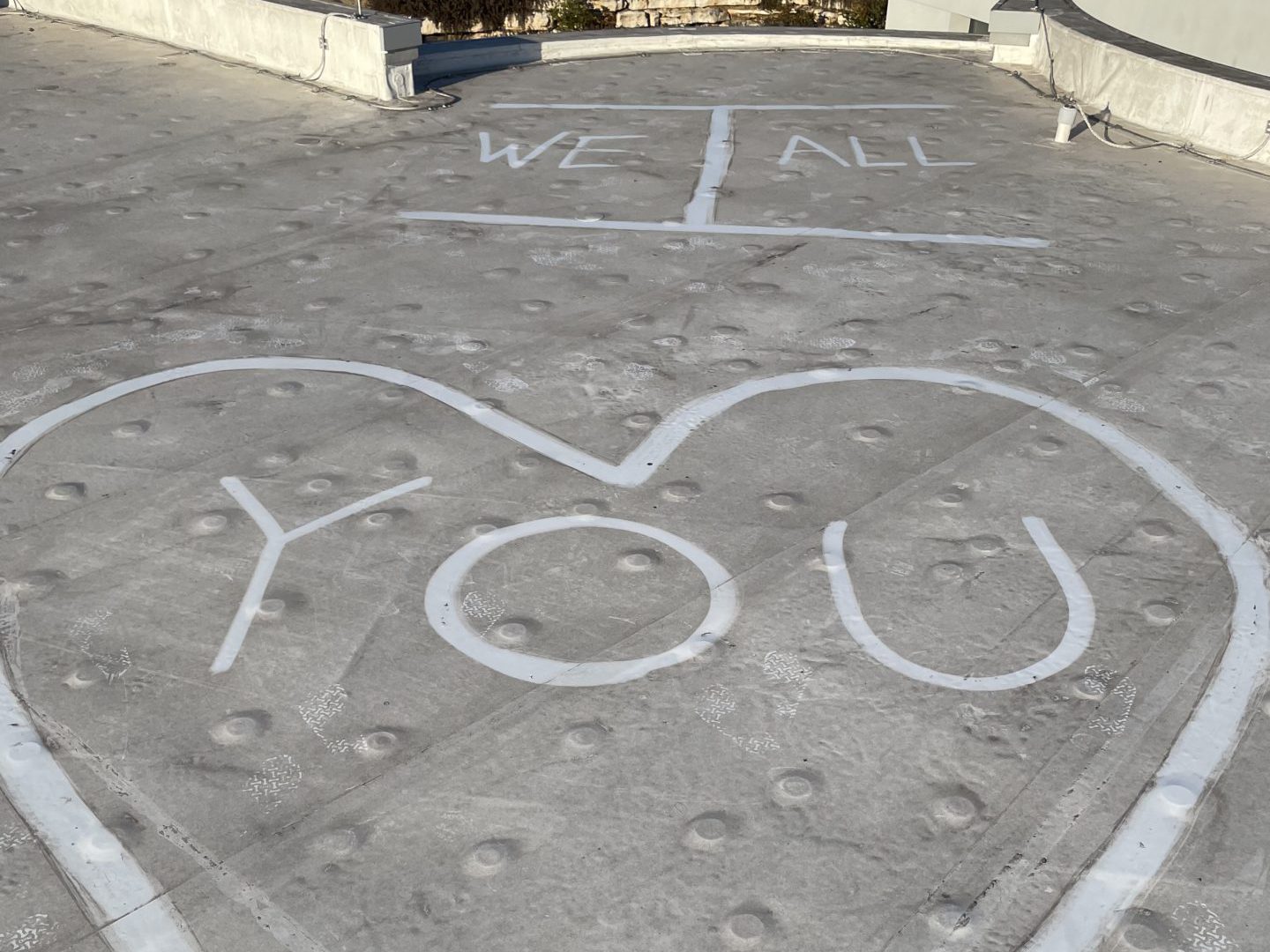
I had a friend who wanted to go to Afghanistan to work with the women and children there. She was not in the military, but she had training with the military for a number of months. She went over there and was with a unit and she brought me this beautiful Afghani rug – silk, stunning, amazing rug – that was called the family tree. It had lots of animals and birds in pairs with babies and it was just so beautiful. I set that out on the roof, I put all my presents up there, and my niece took a bunch of pictures and then she went away. I was up there by myself for about an hour just soaking it all up and finding these gifts.
That playlist is everything from I Am Woman, Hear Me Roar to The Beatles. The other thing that was so much fun, they sent tapes of themselves doing things, and one of them sent me this hilarious poem about how after you have a bilateral mastectomy, you don’t need to have them again. It was about this whole experience of joy and love. I went into my surgery in this great headspace. It was really, really cool. I put that out there for people about to have surgery.
Did you have pain post-surgery?
I don’t think it was right away. It was probably within a month. I think because you have drains, cutting, and big sutures and stuff, you expect that to hurt and it gets better every day. Apparently, there’s a phenomenon known as post-mastectomy pain syndrome.
It hurts in many different ways, off and on throughout the day. Sometimes here [under the arm], which would make sense because they did some incision there. Sometimes it hurts here [in the center of the chest]. Sometimes it hurts here [the lower chest]. This is a little fake bra I’m wearing underneath this shirt. Sometimes it hurts here [the upper chest]. Sometimes it hurts around the back. Sometimes it’s straight across the middle [of the chest]. And when I say hurt, it feels like there’s this vacuum on the inside of me that’s just pulling, tightening, shrinking in. It takes your breath away, it comes out of nowhere, it hurts like crazy, and it doesn’t last as long as it used to.
It’s less frequent than it used to be because of going to a physical therapist who is of the belief that it has to do with the scar tissue. Probably from the first surgery all those years ago and now more scar tissue on top of it. He’s trying to break it up and boy is that painful. He’s also doing something called dry needling, which has facilitated the process of getting healthy and having less pain. We do that every couple of weeks, and in the meantime, he wants me to push and stretch deep down in between the ribs.
It feels like there’s this vacuum on the inside of me that’s just pulling, tightening, shrinking in. It takes your breath away, it comes out of nowhere, it hurts like crazy.
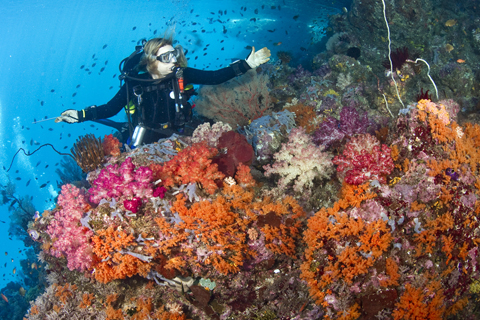
Has physical therapy improved your pain?
Yes, it’s a little bit less intense. Definitely doesn’t last as long. I don’t have as many episodes per day as I did before. That’s all a huge relief. Yet, every night when I take off an outside layer to put on a nightshirt or jammies, just the slightest hint of cold jacks it up. Or if I’m in a room that has a ceiling fan, even with clothes on, it just hits me. I walk around a lot with my hands on my chest to keep warm. A lot of the time, here in the house, I wear a fleece bathrobe just to keep that extra layer on me of warmth.
The literature that I read about it said that it’s not that common. I read that 30 to 40% of women get it, so maybe that is a lot, but it only lasts a few months. I did join a website specifically for people who had flat closures. One woman said it’s lasted for 8 years for her now.
I could get to about here [hands raised above the head] for a week or 2. Then, once I could get to here [clasped hands raised above the head], I was really proud of myself because I had not been able to do it a couple of weeks before. And I think I made a mistake. If I had increased the stretching, moving that tissue around, it might not have gone as far downhill as it did. That’s speculation on my part, but it makes sense to me.
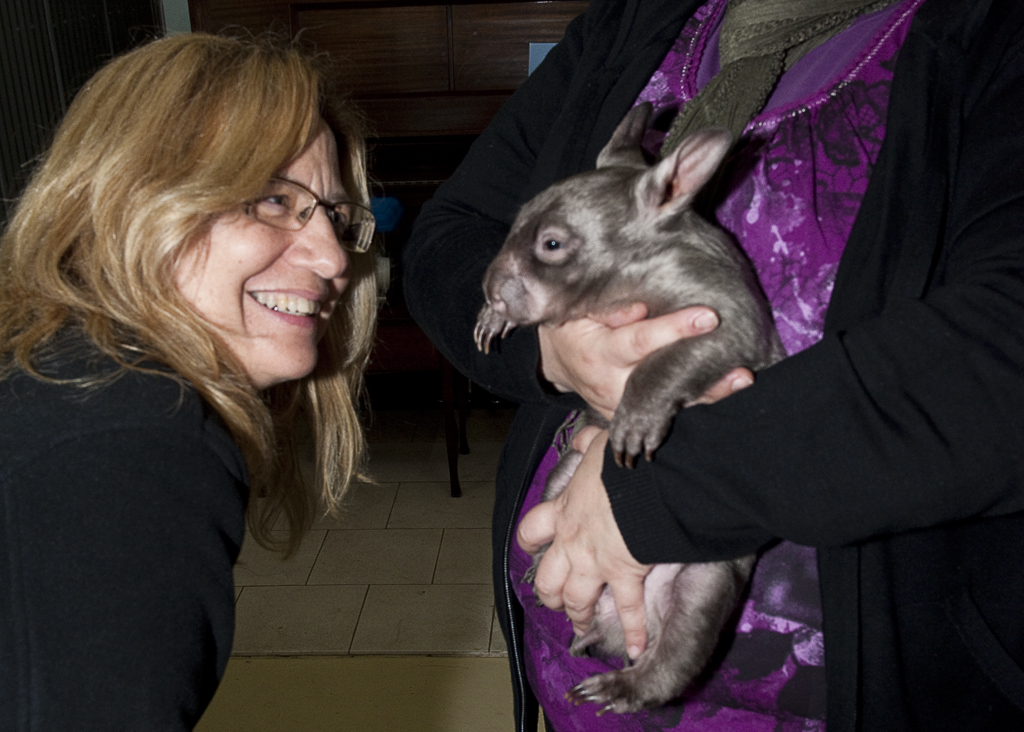
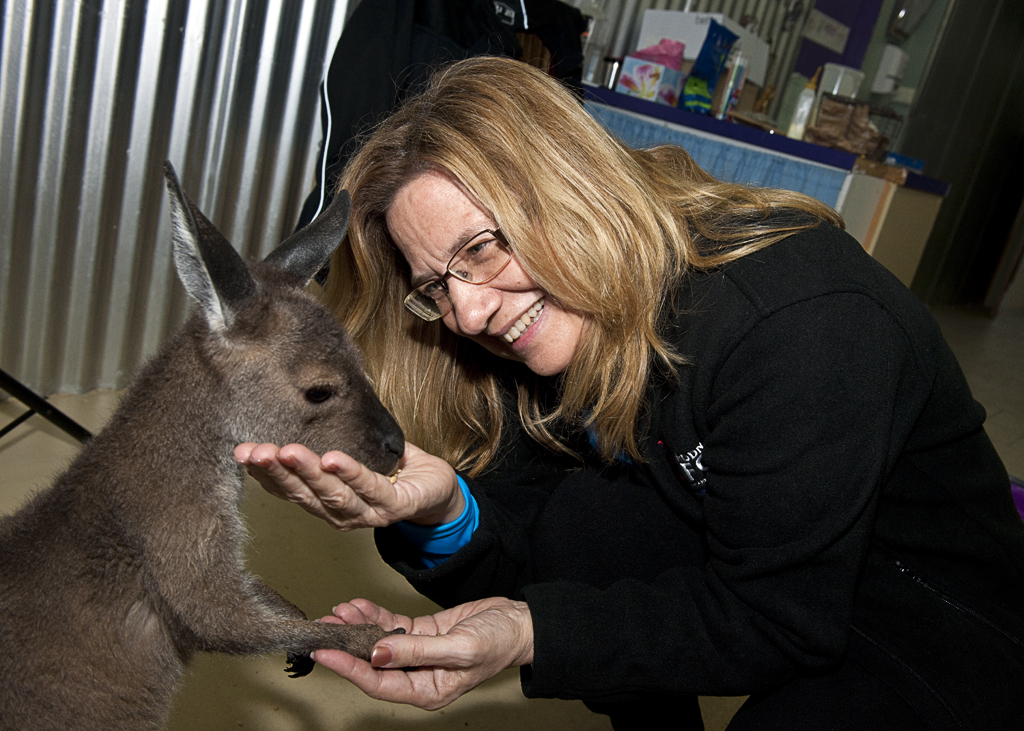
What did your doctors initially do to help your pain?
I went back to MD Anderson to my surgeon, and she said, “The sutures look great.” I thought, yeah, they do, but that’s not what’s happening. She goes, “I think you need to go to the pain clinic.” I went to the pain clinic and he wanted to give me painkillers and yeah, that helps, but it doesn’t solve the problem. Then my Parkinson’s doctor didn’t want me to take the ones that he wanted me to take so I had that problem. I just went around being brave and sucking it up. And that’s not always the wisest thing to do.
How many cancer recurrences have you had?
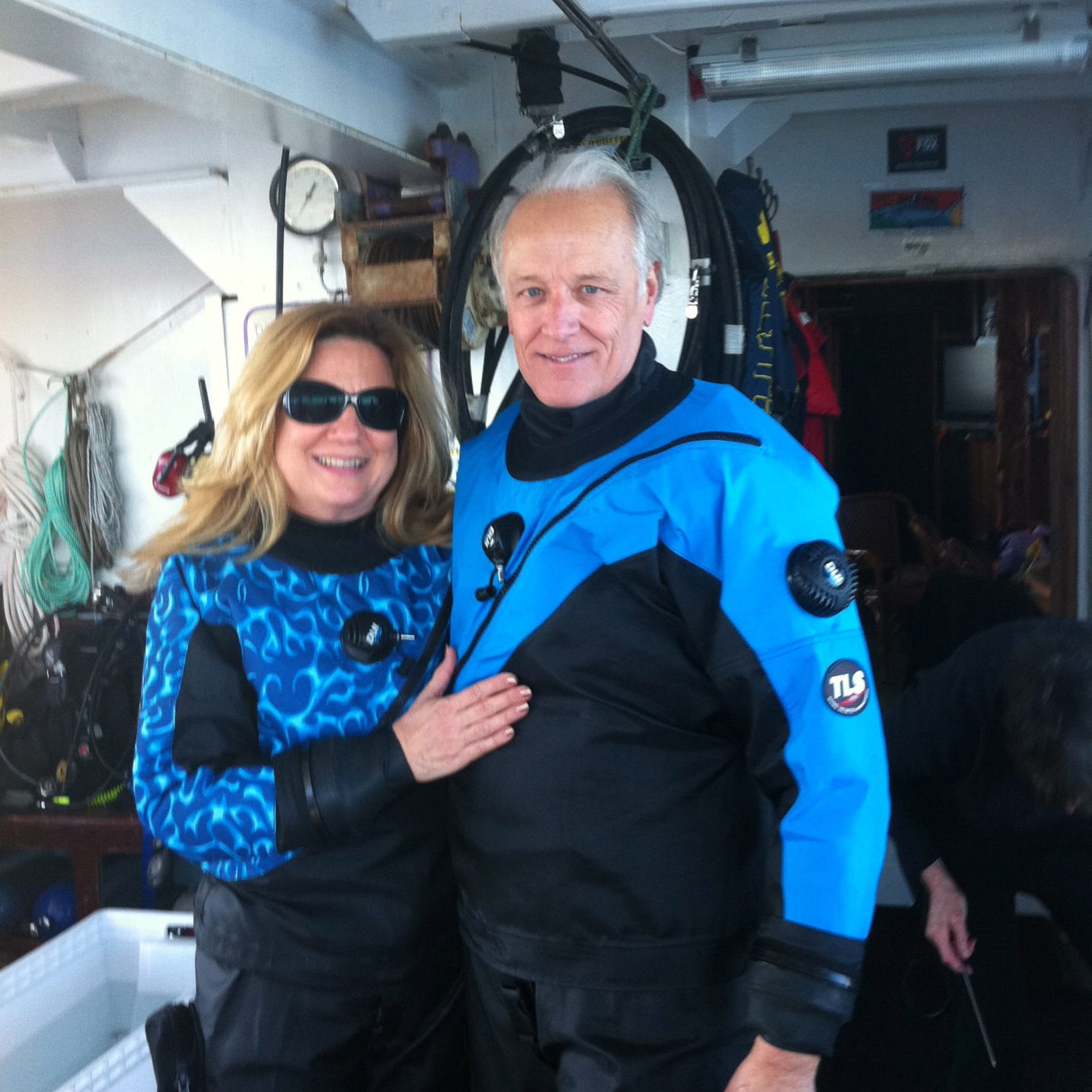
With the bilateral mastectomy, they sent everything to the lab. They found a completely different cancer in my right breast that the mammogram hadn’t shown. It wasn’t the same as the one in my left breast 20 years before. So I’ve had 3 different types of breast cancer in my 2 breasts. That was taken out after the surgery. It was taken out as a result of me saying, let’s do bilateral.
Who did you receive cancer care from with your recurrence?
In the hospital system, at least at MD Anderson, I felt like the oncologist was my doctor. But in the system, it feels like the surgeon is your doctor. I got to the surgeon through the doctor who recommended her. It turned out that 20 years later, my previous doctor was now the head of the breast surgery department. She took me on again.
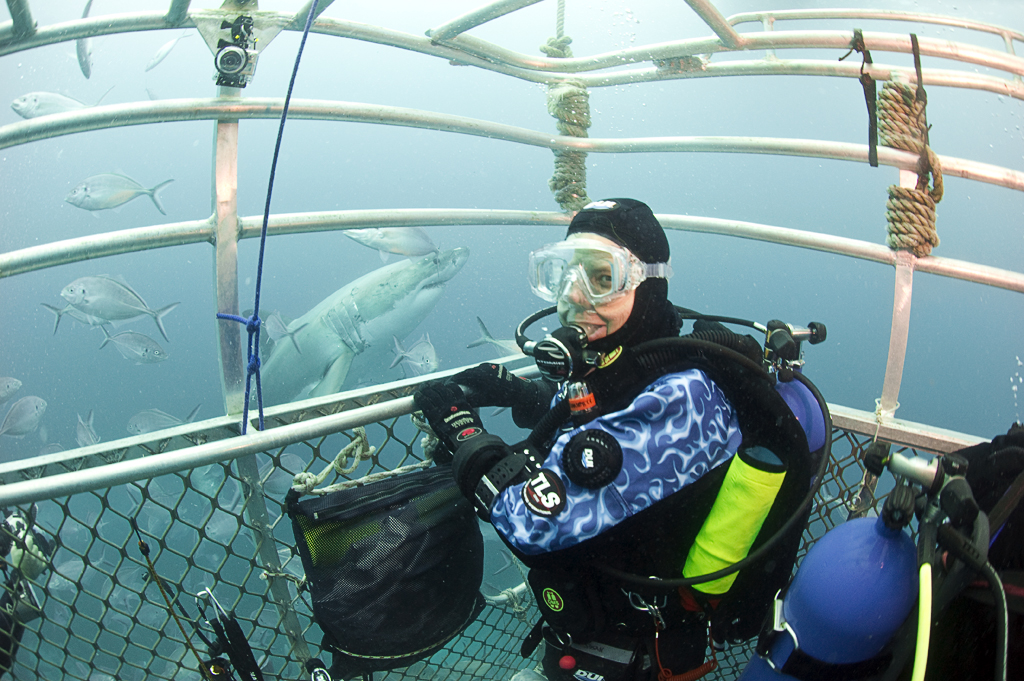
My oncologist was still there too, which was amazing because he was an older man when I was there 20 years ago and he walked in. This was so cute. The first thing he said to me when I came back was, “Let’s figure out what’s going on with this weird-shaped nipple that we had done the biopsies on.” He walks in and doesn’t say anything about the cancer. He goes, “Mrs. Scarlett, if I’m going to have to cure you of cancer every 20 years, the next time you come in here, I’m going to be 99 years old.” A couple of times when I was getting different things done in the hospital, we all wondered how old he was.
They found a completely different cancer in my right breast that the mammogram hadn’t shown. It wasn’t the same as the one in my left breast 20 years before. So I’ve had 3 different types of breast cancer in my 2 breasts.
Reflections
Choosing to have a positive outlook
I would say a couple of things. One is having Parkinson’s disease is a game changer. When I got cancer, my husband said, “You realize in a really weird kind of way, you’re lucky here. There are more people who have breast cancer than anything else, therefore there’s been more research done for more years and we know more about it than we do probably anything else. If you have any hope of getting cured, it’s with something like what you have now.” That was 20-something years ago.
You get Parkinson’s, it was diagnosed 200 years ago. They found a great drug that works really well. As they say, it’s the gold standard close to 60 years ago, and nothing much since then has come anywhere close to a cure. That brain surgery is phenomenal. It’s cured me of all my Parkinson’s symptoms for now, which is a real blessing.
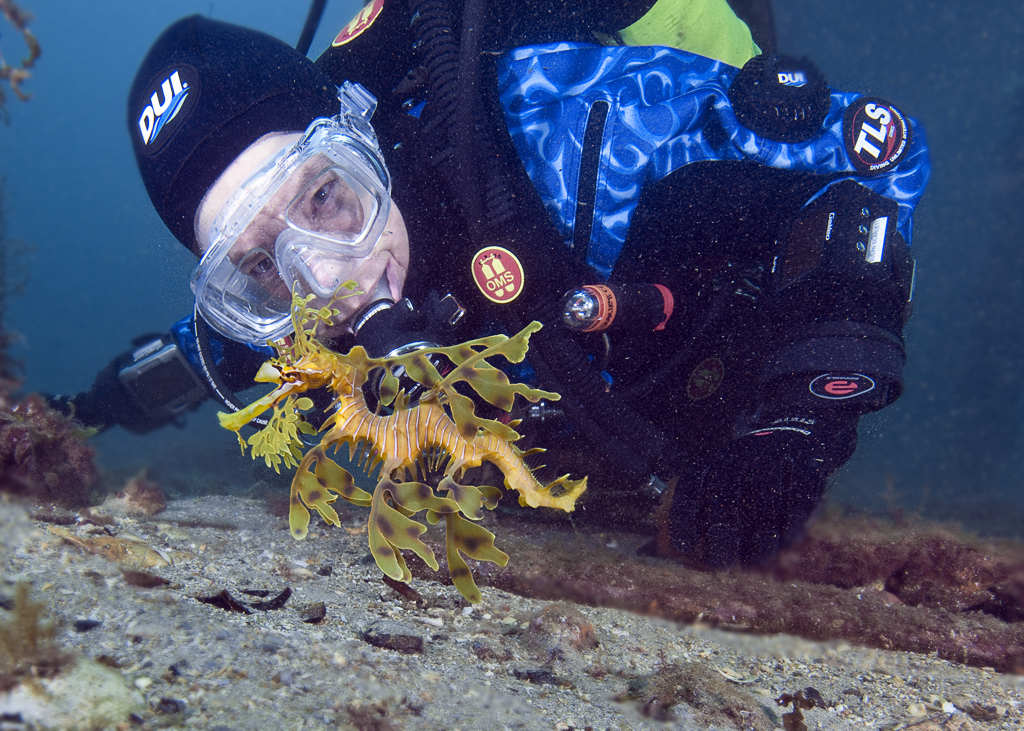
Having Michael J. Fox out there in the world, having lived with Parkinson’s for 20 years, and again, this isn’t the cancer story, but it’s part of my story. The first book he wrote after his diagnosis was called “Lucky Man.” I still get choked up when I think about that. What a title for your book. The other couple of books he’s written have similar titles about an optimist looking up.
There was a documentary called “Still,” which is on Netflix. You may remember the scene. It’s this long shot when he’s walking and this lady walks by and she says, “Hello, Mr. Fox,” and he turns to speak to her and he just falls down and she’s startled and turns around and he says, “It was so nice to meet you, you knocked me off my feet.” Here’s the guy, he’s just fallen to the ground, and he’s still cracking jokes. It is truly inspirational to me to see and witness a story like that.
There are more people who have breast cancer than anything else, therefore there’s been more research done for more years and we know more about it than we do probably anything else. If you have any hope of getting cured, it’s with something like what you have now.”
The other thing is, I’m reading “Man’s Search for Meaning” by Viktor Frankl. Viktor Frankl was a psychiatrist in World War II who was taken off to a concentration camp as was everyone else in his family. He was moved to a different concentration camp, and then he was moved to Auschwitz. He observed that the people who had hope and had a vision had something more than just mindless hope. They had something that they could live for. They lived and the people who were more hopeless and gave up quicker died quicker. That message has integrated itself into me and allowed me to really honor, not just my present, and not just my past, which are hugely important, but the future, too.
To have a sense that, as they say, the sun will come up in the morning. But to care about the sun coming up in the morning, to have that as a potential is so empowering. It’s so, so important.
The importance of expressing your emotions
With my first cancer, my mom came. My younger daughter was still living at home. She was in high school. My older daughter was already on her own. Mom and I made a deal that if we had a bad moment or a bad day or we were scared, pissed off, hurting, or sick, I gave her permission to be truthful with me. If she was having a bad day, she did not try to protect me but just talked to me, and she gave me that same permission.
My daughter was turning 16. We’re having all these kids over here for a meal, and then we were all going to go down to this comedy show. I was in the grocery store with my mom getting ready for this party, and I was overwhelmed with grief. I started to cry and I couldn’t stop. I went into the lady’s room and I cried for a long time. Mom and I had 2 carts because we were trying to be efficient, and pretty soon she realized she didn’t know where I was because I was gone, trying to keep myself together.
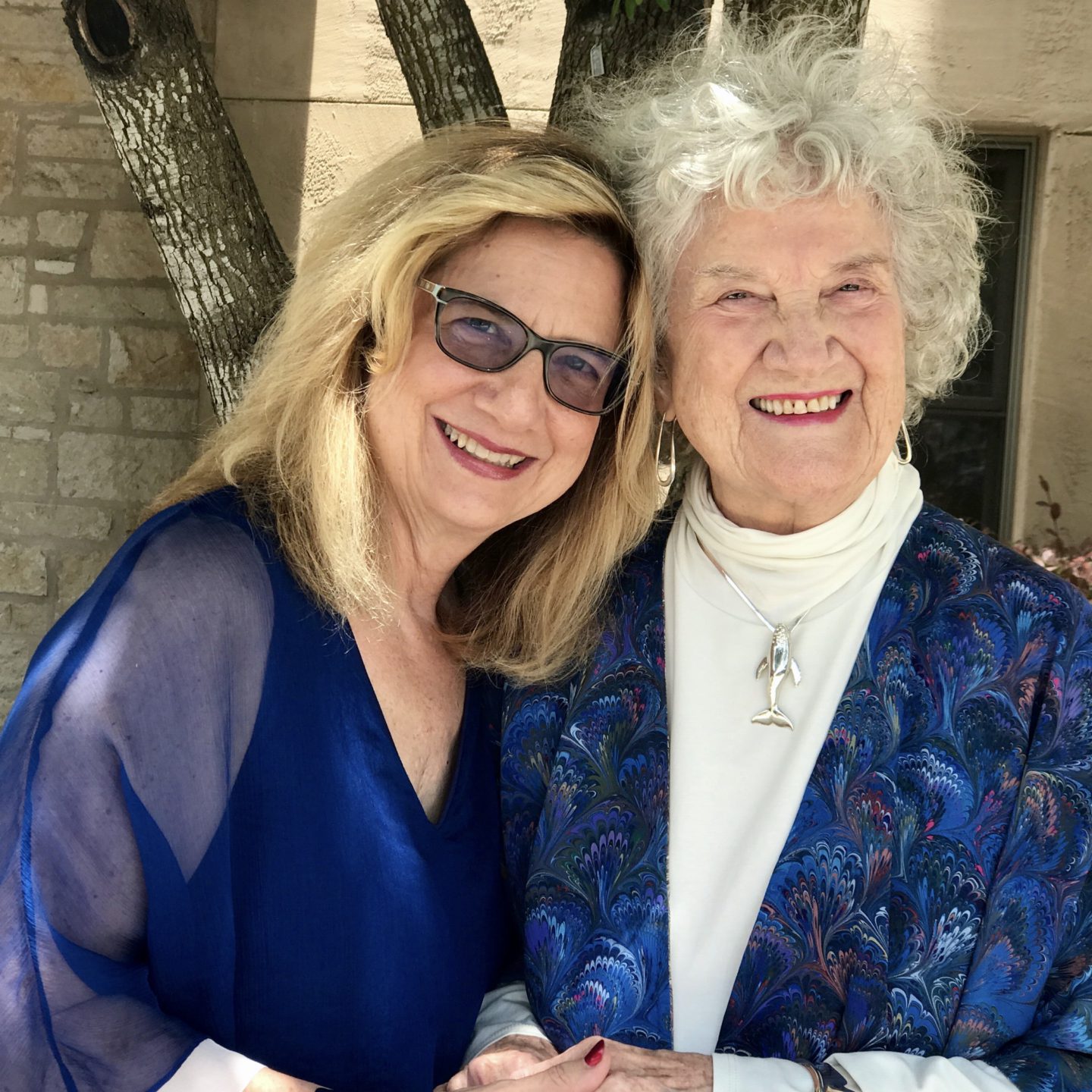
After I was in the bathroom for a long time, I thought I’d better go find Mom. I still couldn’t stop crying. I came out around the corner and she saw me. She was dressed all in white that day, and she saw that I was a mess. She just put her arms around me and I couldn’t even hold myself up. I just started sinking down to the floor and my mom was dressed all in white. She’s holding on to me and she goes all the way to the floor of the grocery store with her white jeans and her white shirt. She was only about loving me and being present for me at that moment. She looked up at somebody and said, “Can you get me some ice and some water?” She was just shaking and sobbing. When you are that truthful, you do yourself a service. Communicate all the time with the people who matter.
What advice do you have for someone on their own cancer journey?
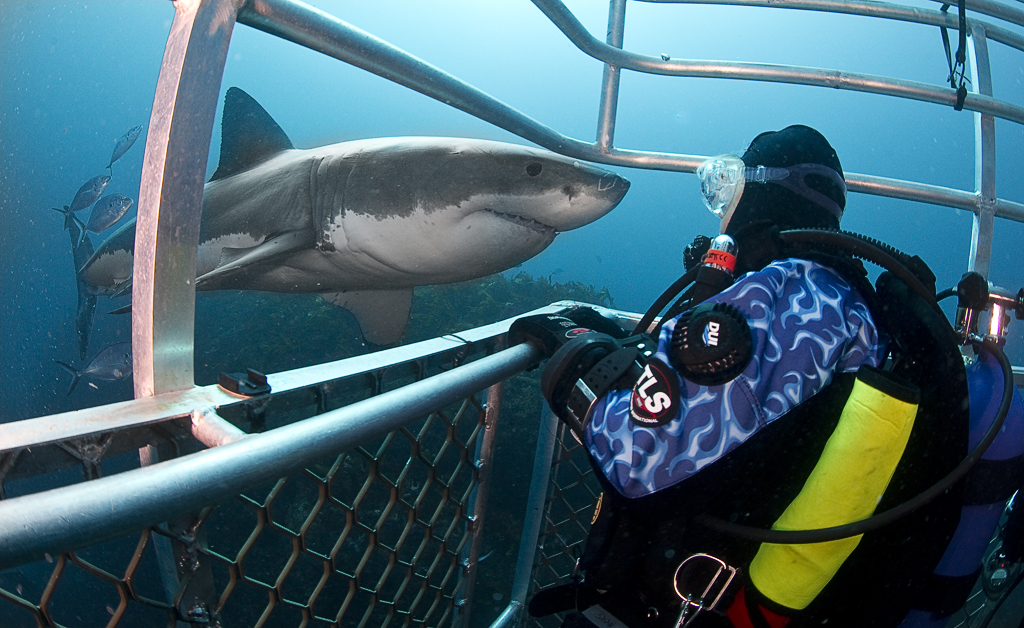
Communicate whatever you’re feeling without fear of judgment from others, without concern for other people’s concern for you. Don’t keep stuff in. Believe that these people who love you are there for you and don’t try to protect them. Be honest with your whole truth, because some days you’re gonna feel better, and some days you’re going to feel worse.
More Breast Cancer Stories
Amelia L., IDC, Stage 1, ER/PR+, HER2-
Symptom: Lump found during self breast exam
Treatments: TC chemotherapy; lumpectomy, double mastectomy, reconstruction; Tamoxifen
Rachel Y., IDC, Stage 1B
Symptoms: None; caught by delayed mammogram
Treatments: Double mastectomy, neoadjuvant chemotherapy, hormone therapy Tamoxifen
Rach D., IDC, Stage 2, Triple Positive
Symptom: Lump in right breast
Treatments: Neoadjuvant chemotherapy, double mastectomy, targeted therapy, hormone therapy
Caitlin J., IDC, Stage 2B, ER/PR+
Symptom: Lump found on breast
Treatments: Lumpectomy, AC/T chemotherapy, radiation, hormone therapy (Lupron & Anastrozole)
Joy R., IDC, Stage 2, Triple Negative
Symptom: Lump in breast
Treatments: Chemotherapy, double mastectomy, hysterectomy
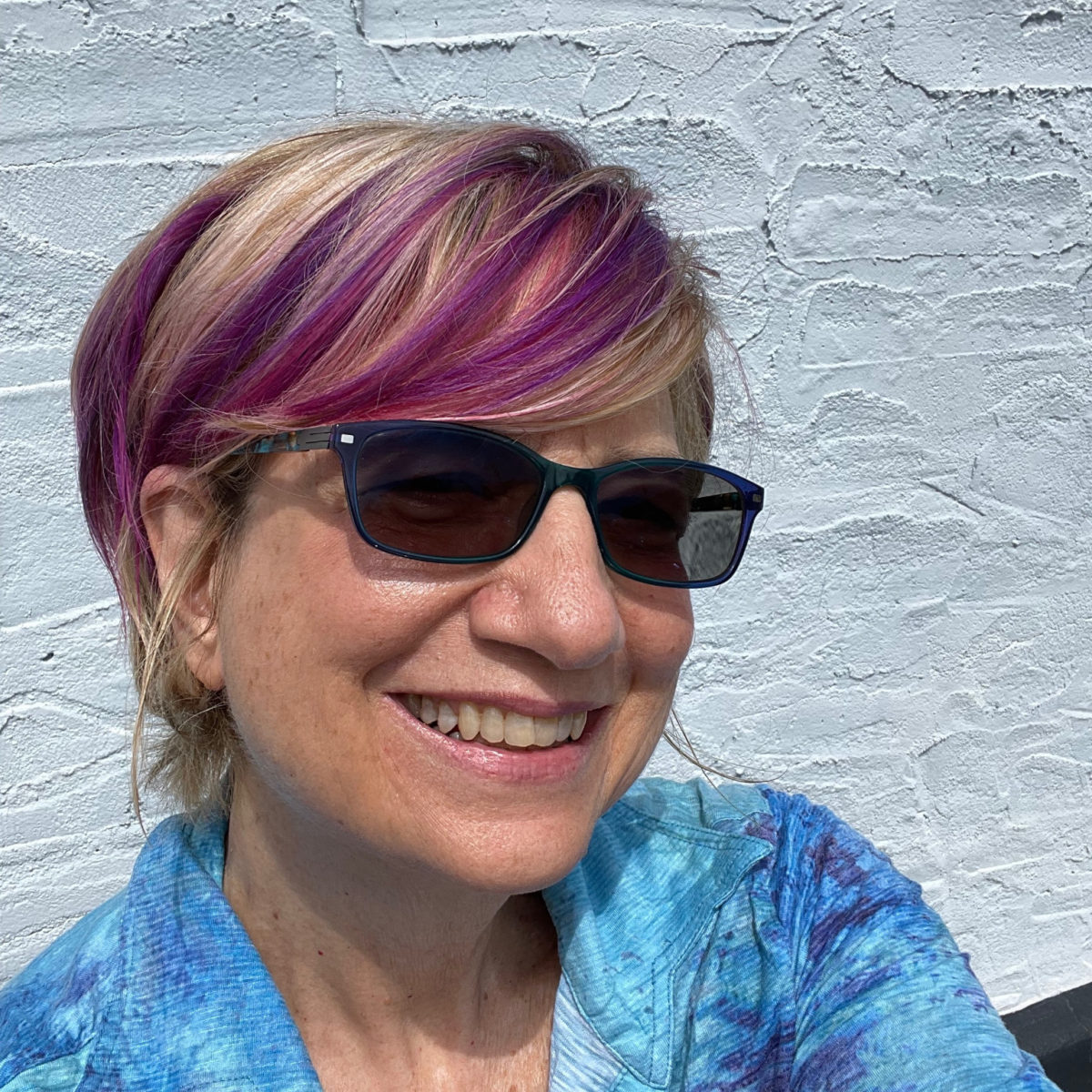
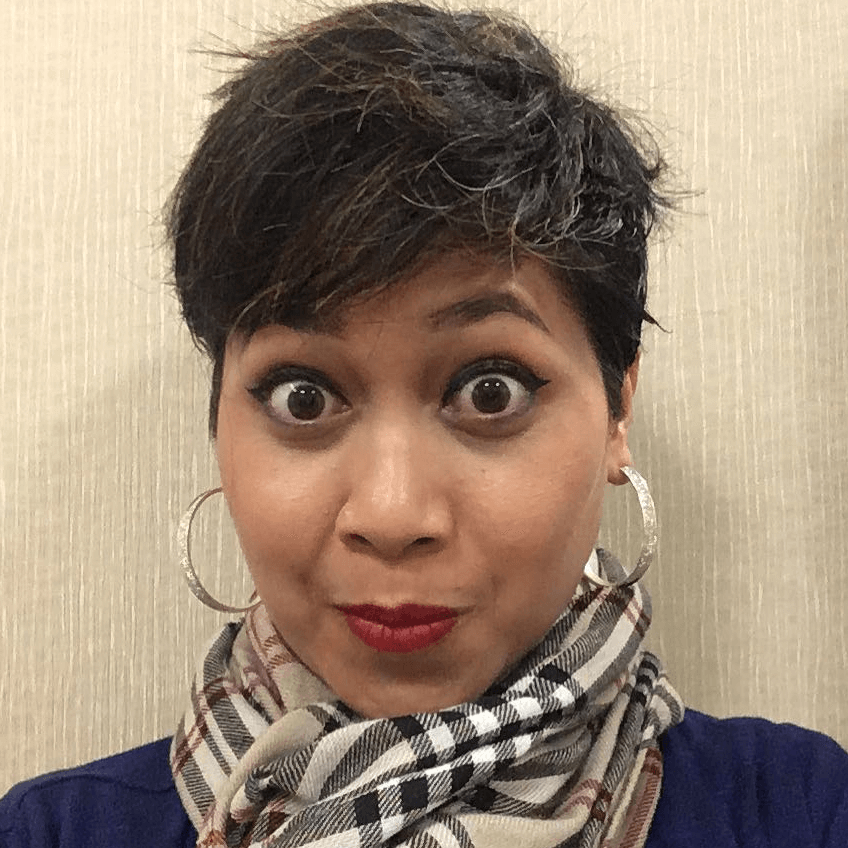
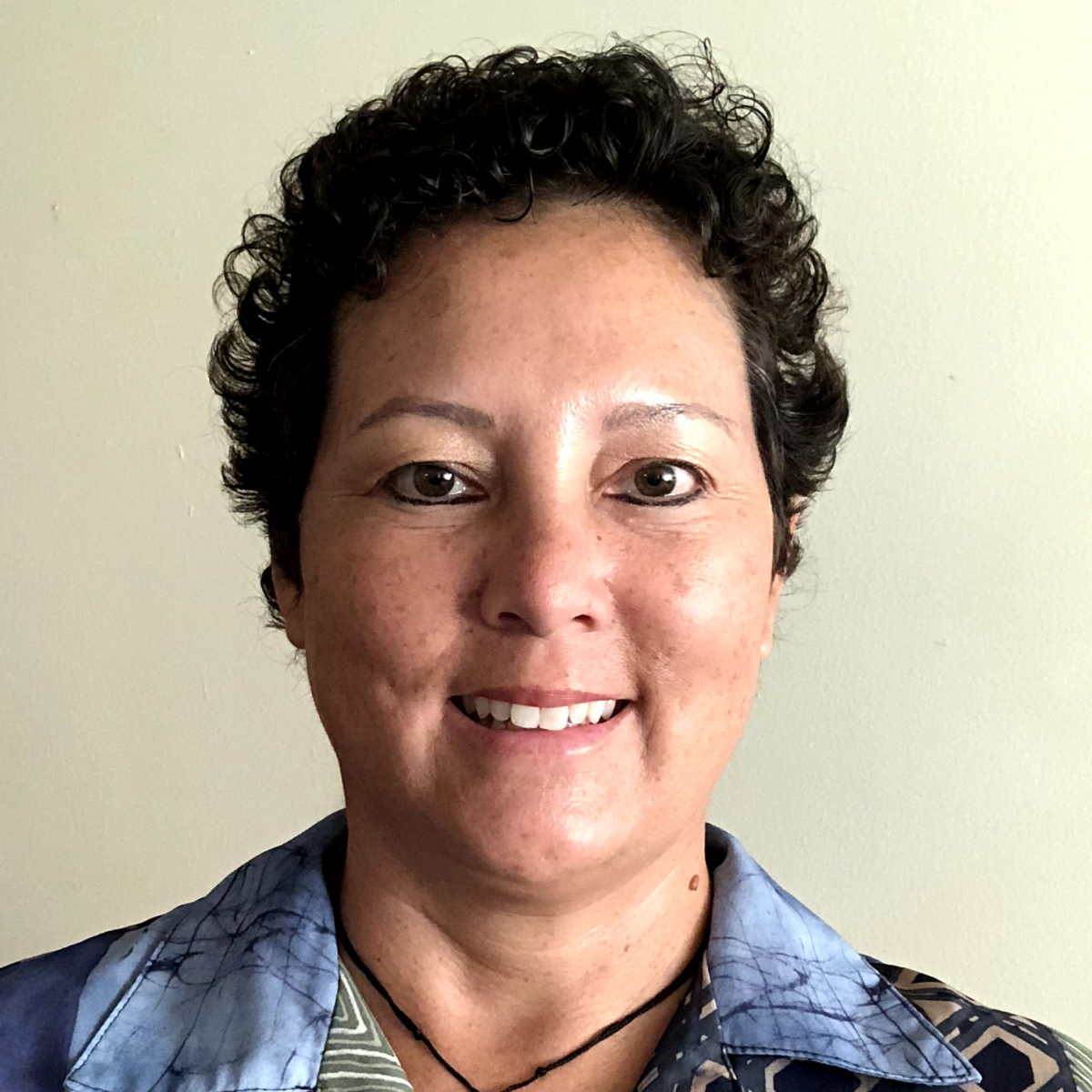
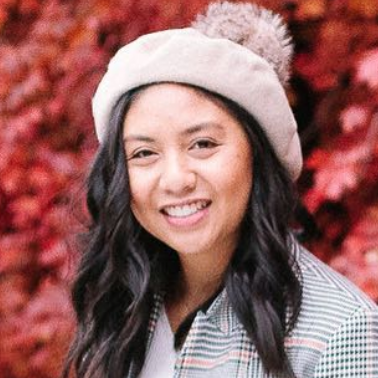
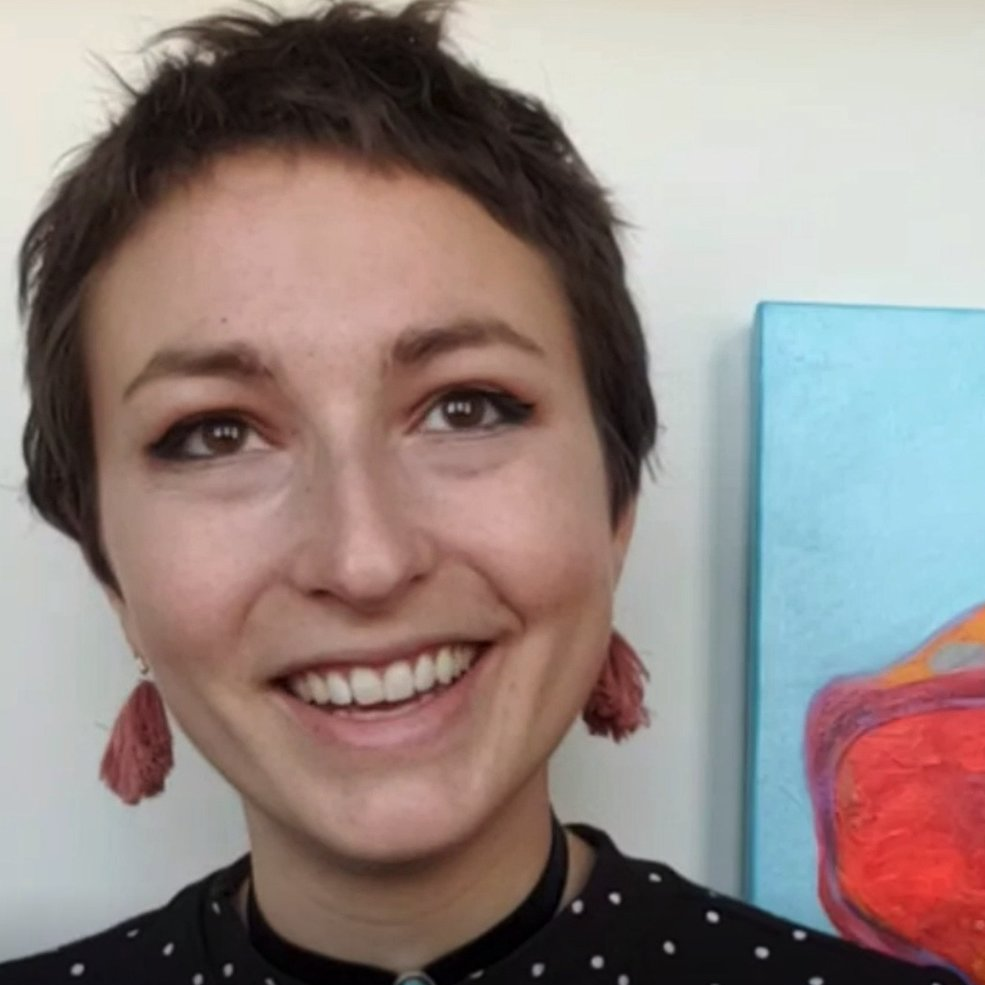
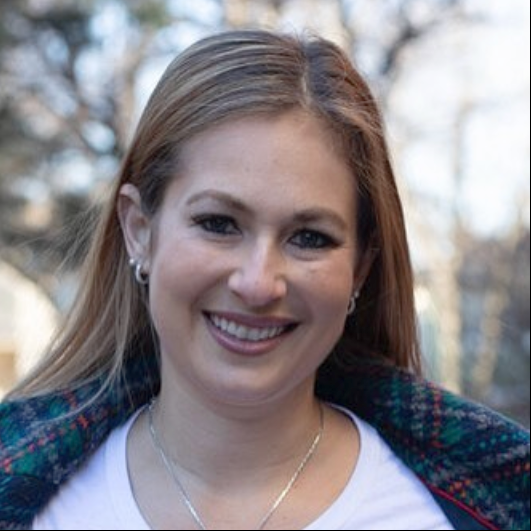
One reply on “Susan’s Recurrent Breast Cancer & Parkinson’s Story”
My Partner, who is 66 years old, was diagnosed with Parkinson’s disease last year. We noticed that he was experiencing hallucinations, slow movement, disturbed sleep, and twitchy hands and legs when at rest. He had to stop taking pramipexole (Sifrol), carbidopa/levodopa, and 2 mg of biperiden because of side effects. Our family doctor recommended a PD-5 treatment from natural herbs centre , which my husband has been undergoing for several months now. Exercise has been very beneficial. He has shown great improvement with the treatment thus far. He is more active now, does more, and feels less apathetic. He has more energy and can do more activities in a day than he did before. As far as tremors I observe a progress, he improved drastically. I thought I would share my husband’s story in case it could be helpful, but ultimately you have to figure out what works best for you. Salutations and well wishes